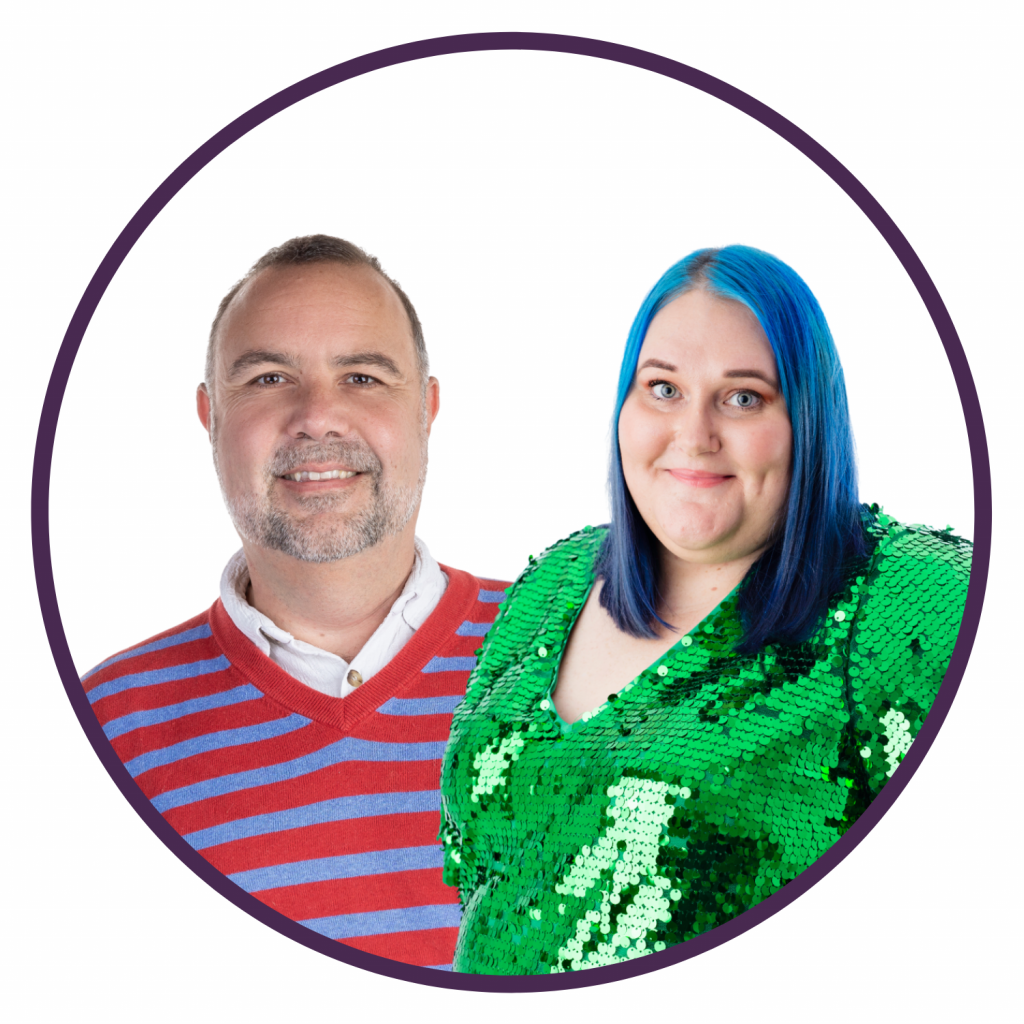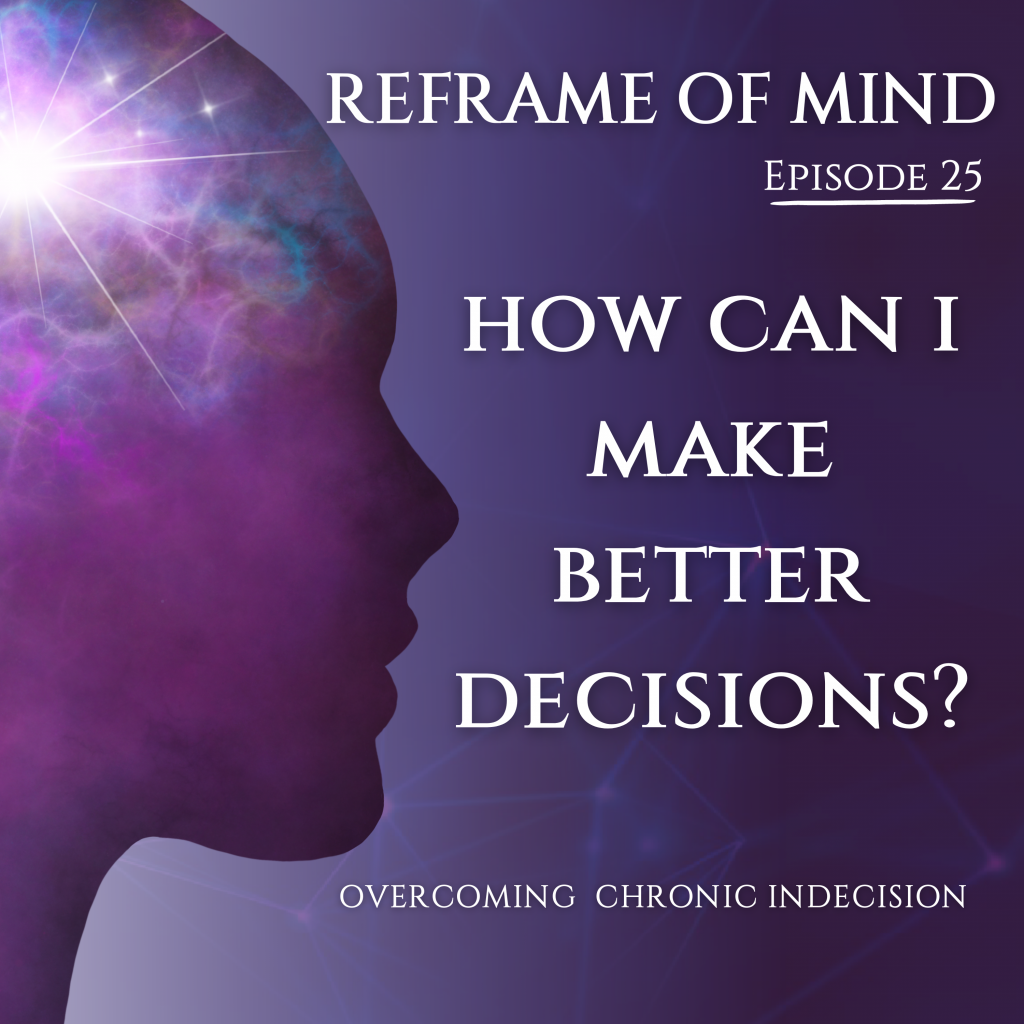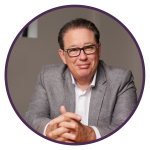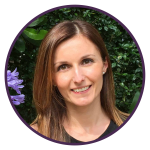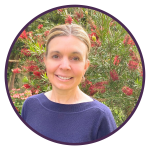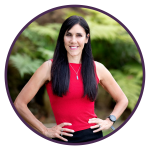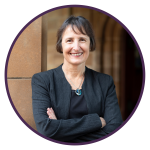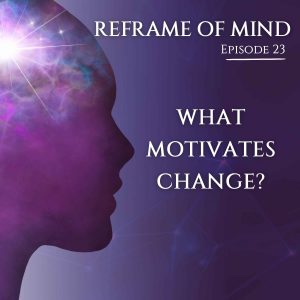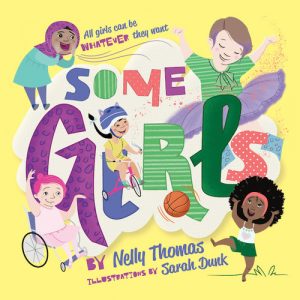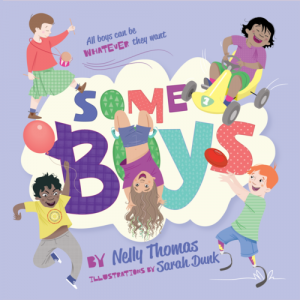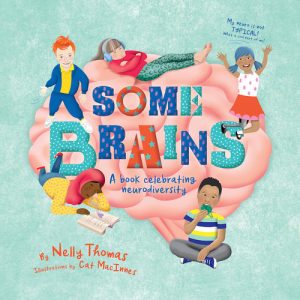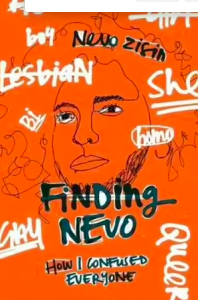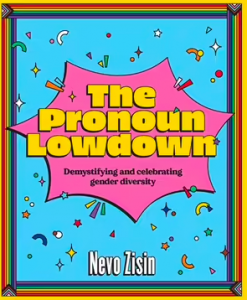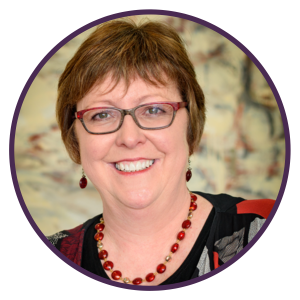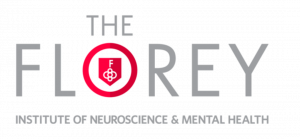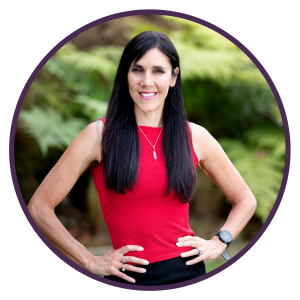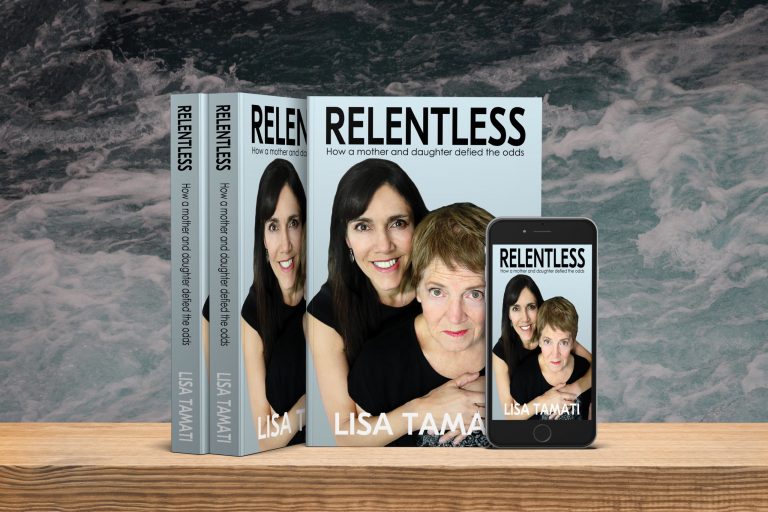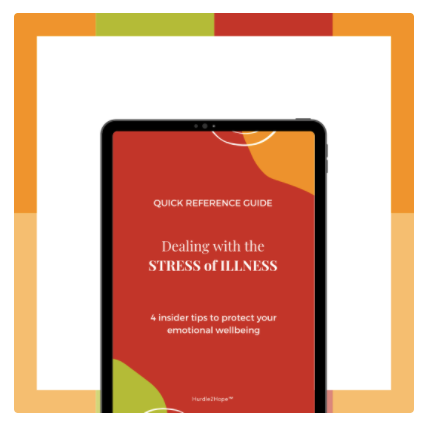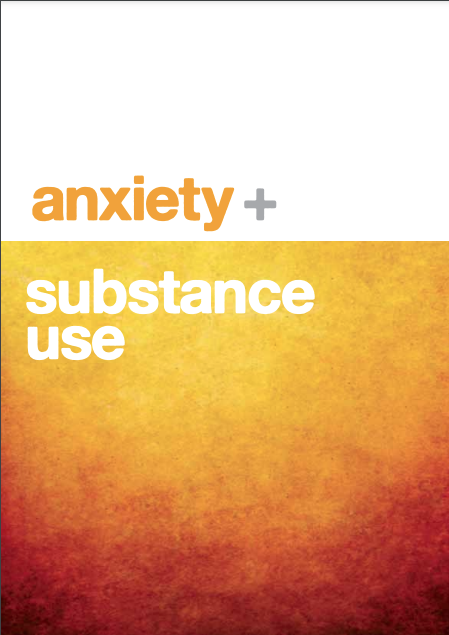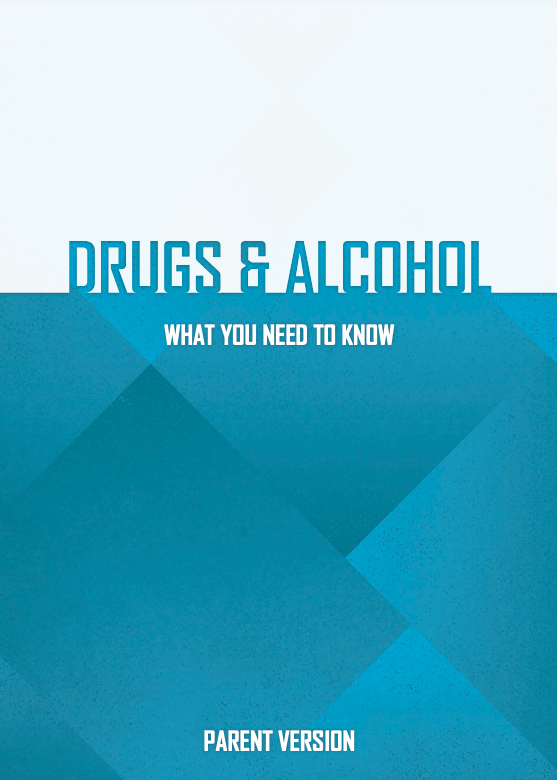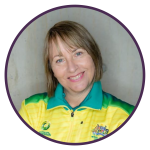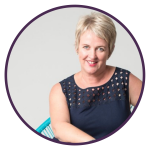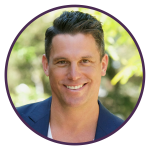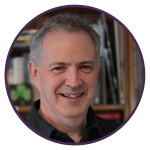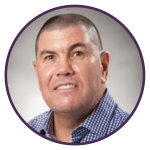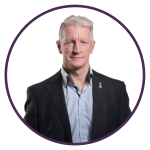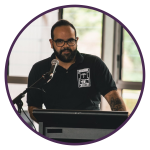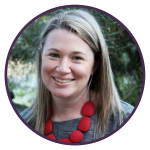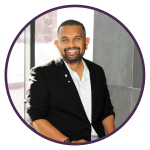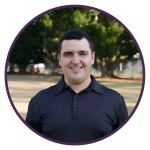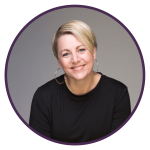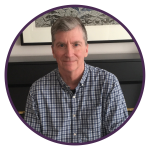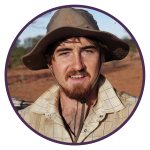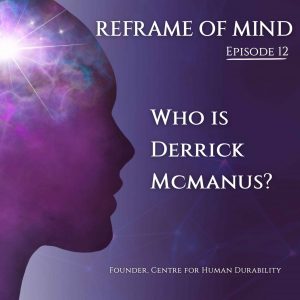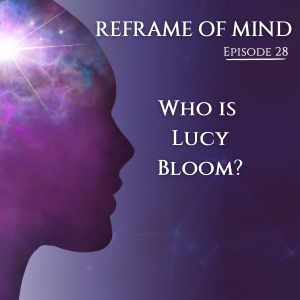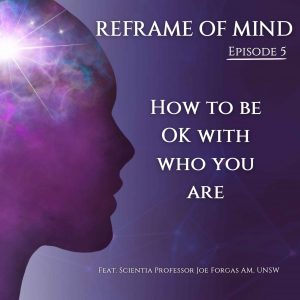Transcript has been auto-generated and may contain errors.
Your support on our patreon would go towards being able to provide a human-edited transcript for accessibility.
Transcript
00:00:00
We acknowledge the Yuggera and Kaurna nations as traditional custodians of the land on which we work, live and learn, and they’re continuing connection with the land waters and community.
00:00:10
We pay our respects to them and their elders past and present.
00:00:13
All content related to this program is for general informational purposes only and contains stories and discussions around mental health that may be disturbing to some listeners.
00:00:22
If you were concerned about yourself or someone you know, please seek professional individual advice and support.
00:00:27
More details are contained in our show notes.
00:00:30
Thanks for your order.
00:00:30
Indecisive just recapping, it’s one super happy burger and a shake is that.
00:00:34
Chicken or beef today.
00:00:35
I’m a beef.
00:00:36
Would you like?
00:00:37
A double beef Patty for next role today.
00:00:38
Yes, but you have a double page, Patti, thanks.
00:00:41
How would you like your beef cooked?
00:00:42
Rare, medium or well done.
00:00:43
Nothing of that in the plight is the medium 2 Peach.
00:00:46
Can you hold on to be safe?
00:00:47
Yeah, well done.
00:00:48
Would you like any extra cells or cheeseburger today?
00:00:50
American shadow and a slice of beetroot.
00:00:53
On top of the normal salad.
00:00:54
Would you like it, honey?
00:00:56
Ooh onion.
00:00:56
No no, no cooked, cooked, sorry cut.
00:01:00
Cooked onion and.
00:01:01
Sauce yes please.
00:01:02
What source would you like from a dozen special flavor selection?
00:01:05
Doesn’t twelve sources and what’s the most popular?
00:01:08
I don’t know, sorry this week I need.
00:01:10
To waste nice.
00:01:10
Oh good, I’ll go.
00:01:11
With tomato, thanks.
00:01:12
OK, so that’s one super happy beef burger.
00:01:14
Double Patty.
00:01:15
Well done with cooked onion, beetroot, American cheddar and tomato sauce and a shake.
00:01:19
Did you wanna add?
00:01:19
Some fries for a.
00:01:20
Dollar right I.
00:01:21
I think we’re having roast tonight, but I do like my fries.
00:01:25
So let’s add the fries.
00:01:26
Small, medium or large.
00:01:28
Do you know how many potatoes are?
00:01:29
Hiring a lot.
00:01:29
So much.
00:01:30
No, no, I’m just wondering if you know.
00:01:31
How many potatoes were in a large ’cause?
00:01:33
I don’t want to go over my potato.
00:01:34
Quota for dinner tonight?
00:01:35
I don’t know.
00:01:35
Sorry small Redeemer large.
00:01:38
Let’s go with Medium, I mean.
00:01:40
SMS gone into rights AM.
00:01:41
I right that’s one.
00:01:42
Super Happy Beef Burger double Patty.
00:01:43
Well done with comp onion, beetroot and American cheddar and tomato sauce at a shake and medium fries.
00:01:48
Would you like fries?
00:01:49
Loaded light?
00:01:49
Loaded size what are the?
00:01:51
Options cheesy bacon chili cheese Buffalo chicken barbecue pork willborn eyes.
00:01:55
So it’s little choice.
00:01:58
Haven’t chicken tonight, so that’s out.
00:02:00
And Balinese will just be more beef so.
00:02:03
I don’t think.
00:02:04
I need more meat, so chili cheese.
00:02:05
But cheesy bacon is nice.
00:02:07
Cheesy bacon loaded fries then.
00:02:09
Actually make it chilly chase.
00:02:10
That’s 1,000,000.
00:02:11
Two cheeseburger fries.
00:02:12
Do you like your chili?
00:02:13
Mild, medium or hot.
00:02:14
I got the snake.
00:02:17
I could go for some pain.
00:02:18
Last time I.
00:02:18
Did that.
00:02:19
I couldn’t really taste anything ’cause.
00:02:20
Of the chili.
00:02:21
Mild thanks.
00:02:23
That’s a super heavy burger double Patty.
00:02:25
Well done with American cheddar cooked onion and beef treatment.
00:02:27
Spider source medium loaded fries with mild chili cheese and a shake.
00:02:30
Was there anything else today?
00:02:31
What size shape did I order?
00:02:31
Shake the.
00:02:33
That’s a small chocolate shake.
00:02:34
Can I change that to a medium vanilla shake instead please?
00:02:38
Would you like to load you banana shake?
00:02:40
Download it.
00:02:42
What can I load it with?
00:02:44
What Eminem’s Orioles Flake was killed?
00:02:47
How much extra does it cost?
00:02:49
They charge special the month.
00:02:50
It’s gonna add more to.
00:02:51
Run for an extra.
00:02:52
Double you can add two in world.
00:02:53
OK, I’m going to add in meetings and.
00:02:55
Schedule things.
00:02:55
OK, so that’s a super happy burger double Patty.
00:02:58
Well done with American cheddar, cooked onion and beetroot tomato sauce with medium level fries with my chili cheese and medium vanilla loaded shake with.
00:03:05
M&M’s and Skittles.
00:03:06
I I don’t think skills are going to go with the.
00:03:08
Admins, can I?
00:03:09
Change that to.
00:03:09
Oreos actually can.
00:03:10
Yeah, sure.
00:03:11
I have the Skittles on?
00:03:12
The site no.
00:03:12
Is there any audience?
00:03:13
If I can add.
00:03:14
Two or more.
00:03:15
Let’s go with M.
00:03:15
And M’s.
00:03:15
And Oreos in shake.
00:03:16
And the Skittles.
00:03:18
Right, so that’s a super happy burger.
00:03:21
Double Patty.
00:03:21
Well done with American.
00:03:22
Share that cooked onion beetroot tomato sauce with medium loaded fries with mild chili cheese and millions were loaded.
00:03:28
Shake with M&M’s and Oreos.
00:03:29
And Skittles on.
00:03:30
The side is there anything else you would like?
00:03:33
I think that’s all, thanks.
00:03:34
That’s $14.50 place without.
00:03:36
The cash or card, sorry now.
00:03:37
You take diners, cut scenes dogs into our restaurant.
00:03:38
Right?
00:03:40
These are most accounts are paying by card today.
00:03:42
I think I’ve got the cash.
00:03:44
1450 yeah yeah.
00:03:45
Yes 1450 please.
00:03:47
I’ve only got 1440 in cash, will you?
00:03:49
Take that story.
00:03:50
We’ll need the full 1450 please. Thank you.
00:03:51
I can’t use my card then.
00:03:53
Please help with swiping you.
00:03:54
Ready hang on? Can I pay 1440 in cash and the last $0.10 on the card?
00:03:58
There’s a minimum transaction fee $0.50 for anything under 10.
00:04:01
Dollars is that OK?
00:04:02
I put 10 on.
00:04:03
The card on the balance in cash.
00:04:05
It’s 450 balance temples. Wrapping you ready. Would you like?
00:04:08
A receipt only.
00:04:09
Oh no.
00:04:09
Thanks, I mean unless you can send.
00:04:10
It to my.
00:04:11
Phone I don’t like wasting food.
00:04:12
We don’t have that option, sorry.
00:04:14
Hey bro dies then yes please I’ll take the receipt.
00:04:17
Can you also throw in some extra napkins?
00:04:20
I’ll have what she’s having, no.
00:04:21
Don’t get me started about toothpaste choice paralysis.
00:04:24
How is it that some decisions are so clear and easy to make when others are fraught with second guesses?
00:04:30
Let’s get to the bottom of it, hang.
00:04:31
Because this is re frame of mind.
00:04:35
Where we deep dive into discussions about mental health during by some of Australia’s leading minds to expand our understanding of the world and ourselves.
00:04:43
Because we don’t exist in.
00:04:44
A vacuum and the way we talk about mental health shouldn’t either.
00:04:47
With your hosts and in the way and Louise Pool.
00:04:50
And last time on re frame of mind we spoke to New Zealand professional Ultra Marathon runner and endurance athlete.
00:04:55
Lisa Tomidy, who made the biggest decision of her life when she dropped everything to nurse her mother back to full health in the face of a very discouraging diagnosis.
00:05:04
Five years ago, my mum had a massive aneurysm.
00:05:07
So she was left at the age of 74, were fighting for a life. For starters, they didn’t think she would survive. When she did, she was in and out of coma for a number of weeks.
00:05:15
And when she did survive and come out the other end of the coma, she had massive brain damage.
00:05:21
And hardly any higher function mentally, so she had.
00:05:23
No control over.
00:05:24
Their body or anything.
00:05:25
Now I’m suddenly confronted, you know, I’ve been up until that point.
00:05:29
This, you know.
00:05:29
Selfish, goal orientated athlete mum was always supporting me and you know looking out for me and helping me as running my businesses and so on, but I was very much I could do.
00:05:40
What I wanted and then this situation happened and we were left.
00:05:45
You know, being told that she would never do anything again, that the brain damage was so massive she would never have any quality of life or do anything and to put her in an institution.
00:05:53
And I was just like no, that’s not happening and so at that point.
00:05:56
I had to.
00:05:56
Stop training and running obviously and doing long.
00:06:00
Stuff I still looked after myself, self care wise, but I put all of my energy’s in focus into her rehabilitation. And even though I was told there was my hope and there is no way forward and just forget it, make it comfortable.
00:06:13
When I said, why don’t do?
00:06:14
Comfortable for start.
00:06:15
And if that’s the.
00:06:17
Option, then I’d rather go down fighting if I’m going to go down.
00:06:21
Lisa told us that this experience changed her relationship with decision making.
00:06:25
There’s just about listening to your intuition, which you know I.
00:06:30
I tend to believe now comes from somewhere else rather than just from our own mind, or sometimes at least there.
00:06:36
You know we can tap into a power if you like.
00:06:39
That can guide us.
00:06:41
I don’t know that for a fact.
00:06:42
But that’s how I feel at the moment, so.
00:06:44
I’m trying to sit now.
00:06:45
When I have a big decision to make, I’m trying to just sit with it and sort of see where my gut is telling me is the right direction to go, and you know the gut being whether it’s my intuition or whether that’s coming from a higher place is helping me make better good decisions.
00:07:01
You know, like sometimes I’ve in the past where I’ve just gone against what my guts telling me.
00:07:05
’cause I think.
00:07:06
This is a great idea and.
00:07:07
Then usually I fall on my face when I do that because there’s something that.
00:07:11
I haven’t picked up on.
00:07:12
And I’m glad that.
00:07:14
Our listeners have made the decision to stick with us so far in the podcast, especially if they start at episode one, ’cause we’re now at 25 OO.
00:07:21
That’s like a Silver Jubilee in queen terms.
00:07:27
Mind you have to be 25 years, but anyway, and I’m glad as well. Look, we made the decision to make the series because you know that really was.
00:07:33
An easy one, after all, if only all decisions were that easy, hey.
00:07:36
I know right?
00:07:37
I mean, it’s definitely been easier for me to decide to make a podcast than it ever will be to.
00:07:42
Order Uber eats the force.
00:07:44
You know what it’s like?
00:07:45
I mean you can.
00:07:46
Find the restaurant.
00:07:47
And then you will negotiate with.
00:07:49
Will be having dinner with.
00:07:50
OK, let’s have this and not this or something else.
00:07:52
And then there’s little every times and then you gotta pick the food and then you want to customize your source.
00:07:57
And by the time you.
00:07:58
Get to the payment you look.
00:08:00
There you go.
00:08:00
Oh my God, is it?
00:08:01
Really worth it. Delivery charge.
00:08:07
Really, how many times then do you just give up and moreover?
00:08:12
You just close the up down and go by there.
00:08:13
I’m going to cook something myself and then 30 minutes later you haven’t cooked something for yourself in.
00:08:17
Your hungrier and.
00:08:18
Any hungrier.
00:08:20
Yeah, I know.
00:08:21
But then, like.
00:08:21
That brings into question about the supermarket.
00:08:24
So many options on the toothpaste, Louise.
00:08:26
Yeah Oh my God oh.
00:08:29
Don’t get me started on the toothpaste.
00:08:33
No, I I think I’m going to get started on the toothpaste, right?
00:08:35
You go to the toothpaste I’ll, I don’t know, I feel like in my utopian memory.
00:08:38
Nostalgic memory.
00:08:39
It just used to be a tiny little section and now it is almost a whole Isle of toothpaste and you know what do you pick?
00:08:47
There’s so many options with whitening with bacterial control with fresh breath with charcoal.
00:08:51
With advanced fresh breath.
00:08:52
Events whitening with tighter control with bootstrap with gum health with advanced MIC broke dumb total white and charcoal extract.
00:08:59
Triple stripe enamel protection.
00:09:01
Complete defence, sensitive freshness, blast 3D. What do you choose?
00:09:05
I think you forgot the baking soda and I’m still.
00:09:07
With that, and is that the one with.
00:09:09
24 hour protection.
00:09:10
Or 48.
00:09:11
You know why can’t they make them all in one just one toothpaste that does?
00:09:15
All those ******* things.
00:09:16
I mean, I remember the good old days when I was a kid and then used to work for Colgate Palmolive.
00:09:20
And just to.
00:09:20
Bring the toothpaste time before I even want to think about choosing.
00:09:23
But these things take.
00:09:24
Up half an.
00:09:25
Hour on the supermarket.
00:09:26
Yeah, well I find honestly supermarket really.
00:09:28
Overwhelming, sometimes it’s showing you’re hungry when I’m hungry.
00:09:32
I just wait everything.
00:09:33
And yet you still managed to come home with nothing.
00:09:35
Why not roll forward nothing?
00:09:35
This is.
00:09:36
Usually spend 100 bucks when you’re hungry.
00:09:38
Now then, we you know.
00:09:40
We really make a lot of decisions every day when you stop and think about it, it’s overwhelming toothpaste and burgers alone, let alone the big stuff.
00:09:47
I know, right?
00:09:48
And I suppose it kind of begs the question.
00:09:51
What stops us from making some of those decisions?
00:09:54
Is it through a failure or is it making the wrong choice?
00:09:57
Or is it just not having collected enough data?
00:10:00
There were some decisions.
00:10:01
Easier than others.
00:10:01
All the toothpaste right?
00:10:03
Got plenty of data, but I could certainly be making the wrong choice.
00:10:07
I mean if I don’t get them with baking soda, the world might be over.
00:10:10
Time will tell, Tik T.O.K.
00:10:11
So we need some help working this out and we’ve enlisted Scientia Professor Joe Fergus am from the University of New South Wales who is an expert on decision making.
00:10:21
Yeah, if you’ve.
00:10:22
Ever picked up a psychology textbook?
00:10:23
There’s a good chance Joe for Ghost Rider chapter in.
00:10:27
Google Scholar says he’s been cited thirty 4293 times.
00:10:33
Massive, so you probably referenced in your assignment as well at some point, and we’ve certainly given him plenty of footnotes in this series so far.
00:10:41
Yet Joe was published 27 books, over 200 articles and book chapters, so we asked him to introduce his own accolades.
00:10:49
I am CNT a professor at the University of New South Wales.
00:10:54
I am ever published experimental cognitive social psychologists.
00:11:00
I’ve got an order of Australia for my efforts and I don’t know what else I’ve got all sorts of prizes and stuff, but you may not.
00:11:09
Want to list all of those?
00:11:11
We would like to see your.
00:11:12
Trophy Room what’s going on there?
00:11:14
I I don’t have a job and I have a few things on my on my wall.
00:11:18
I’ve got the distinguished Scientific Contribution award from the Australian Psychological Society.
00:11:25
The Alexander from Humboldt Prize from Germany.
00:11:29
I had a Rockefeller.
00:11:31
A scholarship you know stuff like that, but you don’t want to know that really.
00:11:36
You originally is much better than ours.
00:11:38
About you know it takes time and I’m getting quite old.
00:11:43
And Joe told us about the nature of decision making.
00:11:46
Not what decisions are the same.
00:11:48
There are decisions where you have a fair amount of control and there are decisions where a lot of the control is outside your power and there are decisions which are rationally foreseeable.
00:12:00
In other words, you can calculate the pluses and their minuses as best as you can, and many where you are dealing with.
00:12:06
Intrinsic uncertainty, so there is no single good answer.
00:12:11
I suppose the the first step would be to try to analyze what sort of decision disease?
00:12:18
How much of a control I have over this?
00:12:21
How much information I have the problem very often is when you thinking about decisions for the future that we are not very good in knowing what would really make us happy.
00:12:32
You know when you buy a car, how do you make a decision?
00:12:35
How do you know whether having.
00:12:38
That particular gizmo is going to be more important to you than some other gives more.
00:12:43
You just don’t know and so very often you deal with a great deal of uncertainty, and then that is the case.
00:12:49
Ah, that’s also important in decisions you have to recognize that there is nothing more you can do, so just choose one or the other and go with it.
00:12:58
So we.
00:12:59
Really, just typically lazy as thinkers as human beings and just seek what serves our own beliefs.
00:13:06
I’m just thinking specifically again around the the topic of politics and leaders and how.
00:13:12
They will often get up into the media with a brief statement of some sort, but their statement is completely incongruent with their actions and yet people don’t tend to look beyond the words they say.
00:13:24
Absolutely, between Trump is a good example.
00:13:27
I think people calculate a thousands of perhaps 10s of thousands of untruth that he’s spoken, but it didn’t seem to bother anybody, so it’s it’s absolutely true.
00:13:37
Another feature of human cognition is that we rely on shortcuts and heuristics almost all the time.
00:13:45
Daniel Kahneman, who is a Nobel Prize winning social psychologist?
00:13:49
He got his Nobel Prize in economics by studying judgments and decision making.
00:13:54
Has written an excellent book on thinking fast.
00:13:57
And slow, and he makes the point that thinking fast, jumping to conclusions, not evaluating the evidence, making mental shortcuts, is the four back technique for human thinking.
00:14:10
So absolutely, the idea of rationally weighing up and examining the average.
00:14:15
Dance requires extra motivation, extra effort, extra time, and so most of the time most people aren’t really doing that.
00:14:24
It can be learned, and it can be taught, but it’s effortful and we are essentially cognitively needs.
00:14:32
See, This is why we started calling them Joe bombs because he drops these home truths on us.
00:14:38
I’m definitely feeling called out about being cognitively lazy.
00:14:43
And he’s right.
00:14:44
Yeah, it’s a bit.
00:14:45
Like a carpet.
00:14:46
Bomb going off emotionally, sometimes with Joey, but where do the toothpaste and the Super happy burger with fries sit on the importance of decision making?
00:14:54
I think you’ll find that’s a super happy burger.
00:14:56
Double Patty.
00:14:56
Well done with American cheddar, cooked onion and beetroot tomato sauce, medium loaded fries with mild chili cheese, vanilla, medium loaded, shake with Eminem.
00:15:03
And Oreos and Skittles on the side actually.
00:15:05
On the side, I’m surprised you even go with both of the other options on the side.
00:15:10
Since she’s playing the bowler but anyway.
00:15:12
Hey look.
00:15:13
Truth be told, we probably created a lot of mental shortcuts around choices like those because carefully considering every decision is exhausting and it’s overwhelming.
00:15:22
Yeah, and we.
00:15:23
Didn’t consciously create most of those shortcuts, so I wonder now where else we’ve built shortcuts into our thoughts and behaviors that we’re not consciously aware of.
00:15:31
So can we talk about the.
00:15:33
I’m ******* done.
00:15:37
Yes, the I can’t do this anymore moment the.
00:15:40
I I just I just just fast.
00:15:41
This bra doesn’t.
00:15:41
Fit and I’m not going to wear it anymore.
00:15:44
Big moment, yeah, we discussed this a couple of episodes ago.
00:15:48
It’s windows circumstances or situations feelings that you’re living kind of reaches that tipping point where you have no choice but to choose to change.
00:15:57
You kind of forced into it to make an intentional decision.
00:16:00
Because all those other times that we didn’t actually make a decision was actually choosing not to make a decision whether we wanted to admit that or not.
00:16:06
Yeah, and the IFD you’re ********* done.
00:16:09
Well, I FD you’ve oh I love it I love.
00:16:11
I FD.
00:16:13
It we’re gonna.
00:16:13
Yeah so.
00:16:14
This is how we get the the Jenn is is the one of the now.
00:16:17
#ifd
00:16:18
What’s the new generation?
00:16:20
Oh, FCK noise.
00:16:21
So I think they’re climbing thick and fast now.
00:16:21
Then the gingins it’s.
00:16:24
I think the world is generation alpha now.
00:16:26
We’ll go with the babies I think.
00:16:27
Are they?
00:16:27
I don’t know, I don’t know and then like Gen Y used to be generally about how the millennials they.
00:16:28
This is how we get the tick.
00:16:29
Tock kids with the FDA is.
00:16:32
Rebranded themselves, but.
00:16:33
Yeah no, no.
00:16:33
Of course they did, but anyway, I know.
00:16:34
Well, I’m a millennial.
00:16:36
By year
00:16:39
But you gotta take it, I’m gonna take it.
00:16:41
I will take it.
00:16:41
Millennials are old now, so it’s not even cool anymore.
00:16:43
I am Janet Jackson.
00:16:45
Proud going to wear that with pride anyway.
00:16:47
Gen XIFD.
00:16:49
So that IFD feeling
00:16:52
It’s actually brought out of deciding to move away from something or run away from something rather than move towards it.
00:16:57
Yeah, look, I’ve been thinking about this a lot lately because of those episodes.
00:17:01
Words a few few weeks ago.
00:17:03
Funny how that happens.
00:17:04
I’m having an episode, Oh my God, another episode.
00:17:06
I’m having it.
00:17:07
I’m having an episode ending episode, but like it’s really made me animals.
00:17:11
A lot of those past experiences ’cause I always thought that I found it easy to make those big life decisions.
00:17:16
You know I’ve moved to heads of different places.
00:17:18
Should we do?
00:17:18
The list should do this OK?
00:17:19
Come on, let’s be like Lucky star and list all cities.
00:17:22
Louise has been too.
00:17:22
I’ve been everywhere, man, I’ve been everywhere.
00:17:25
Yeah, you breathe it in and.
00:17:27
Uh, yeah dude.
00:17:28
Actually I didn’t breathe the.
00:17:29
What’s the what’s the NT desert? The one that goes?
00:17:32
Geography is never been my strong point.
00:17:34
There’s a visit, though.
00:17:34
Let’s just.
00:17:35
There’s a.
00:17:35
Desert in the middle.
00:17:36
Let’s just call other dirty deserts.
00:17:37
I’ve breathed The Dirty desert air man.
00:17:41
-
00:17:44
I’ve been in Brisbane.
00:17:45
Booga Ballarat camera.
00:17:47
You don’t have to sing, please don’t.
00:17:50
Environ Newcastle Muscle both Darwin, Ipswich and Brisbane I feeling everywhere.
00:17:57
You’ve lived everywhere I’ve.
00:17:58
Lived everywhere then.
00:17:58
You’ve lived, you’ve taken your suitcase.
00:18:01
You’ve taken your clothes you’re taking you’re taking your cats.
00:18:04
You know the.
00:18:05
The gym, the gym headers aren’t going to get that song reference either.
00:18:09
So nuts.
00:18:09
Then all, sorry, Jane said.
00:18:11
We just lost a whole.
00:18:13
That’s how you cut off.
00:18:14
An audience gone point is not that I Can’t Sing, it’s that those big decisions of moving.
00:18:20
You know my life from one city to another.
00:18:22
For jobs they felt easy.
00:18:24
They they felt like I was making a gut decision that actually the feeling that I had was this overwhelming.
00:18:30
This is what I.
00:18:31
Have to do.
00:18:32
Like real clear moment of clarity.
00:18:34
To make that big decision.
00:18:36
Spend very little time.
00:18:37
Thinking of the consequences.
00:18:39
-
00:18:42
Consequences are ways of packing up your whole life constantly in moving into state, huh?
00:18:46
Money and lack of support.
00:18:48
Lack of friends, loneliness, isolation, money.
00:18:51
Again it is expensive to move, even if you’re going 3 streets down the.
00:18:54
It is, yeah it is.
00:18:56
You’re running into thousands automatically, but you always kind of had the sense.
00:19:00
That things would.
00:19:00
Workout yeah, oh, I thought I did.
00:19:04
He said well though I’m looking at my past experiences through this new lens.
00:19:08
I’m wondering if maybe I made just searching.
00:19:11
Quicker without thinking about them dreamer.
00:19:15
Close your eyes.
00:19:15
Right, yeah, yeah, yeah yeah move, move, move.
00:19:17
And maybe if I actually was running away from things instead of running two things.
00:19:23
I I say is.
00:19:25
This cycle just couch time.
00:19:26
Do I need to pull out my my.
00:19:28
Notebook and pen.
00:19:29
I hope you take the Medicare rebate.
00:19:31
I’ve got no money after moving that many cities.
00:19:33
Look, I can certainly take your Medicare card, but I can’t promise.
00:19:38
Yeah, so well, I think those.
00:19:39
Big decisions sometimes felt.
00:19:41
Really easy and quick because I was went Yep.
00:19:44
Like a big thing.
00:19:44
Done, the flip side is like other decisions have really been paralyzing, particularly the emotional ones you know, hanging onto relationships, friendships longer than I should have.
00:19:55
I feel like I’ve allowed myself to be taken advantage of by people and situations.
00:19:59
Because maybe I haven’t been.
00:20:00
Able to make a decision to stop it like like sunk cost fallacy from last episode.
00:20:01
Yeah right OK.
00:20:05
Ghost, phallus.
00:20:08
We come up with.
00:20:10
All of the shiny new terms so.
00:20:11
You don’t have to.
00:20:12
I tell you that’s going to catch on with Gen Z.
00:20:14
We might have lost the with Lucky Star, but we’ll get him back with sunk cost fallacy, it’s.
00:20:18
-
00:20:19
The old SCP.
00:20:20
It’s a sleepy.
00:20:22
So it’s weird that those.
00:20:24
Big decisions felt easy and expansive, but the ones that were around me.
00:20:29
Options that were probably more important for me to.
00:20:31
Make they lead to paralysis almost.
00:20:34
Like being in.
00:20:35
The idle supermarket with the toothpaste again.
00:20:37
Are not the toothpaste again?
00:20:39
So I guess something that you’ve been working on.
00:20:41
Though in our journey.
00:20:43
With this podcast, as well as untangling your personal identity from your professional one.
00:20:47
So how does conscious decision making, planning to that do you think?
00:20:51
Well, you know this is the first time I’ve lived in the city and actually the first time I’ve stayed in the.
00:20:55
City after I’ve left a job, normally it.
00:20:57
It’s 20 years of my media life.
00:21:00
When I’ve left a job, I’ve left the C as well or yeah, so the hot so it’s not just change a job, it’s just ripped my whole life.
00:21:02
Packed the whole thing up and gone.
00:21:08
Burn it all down, start again.
00:21:10
Chuck it onto the gypsy cart and move on.
00:21:12
Yeah, so it’s actually been really tough to make those conscious decisions that actually separate my identity as a person from my identity as an employee from as a as a job as a career.
00:21:25
They’ve all been so closely linked I suppose, hey.
00:21:28
Like have I just been on autopilot?
00:21:30
My whole life.
00:21:31
Well, I don’t know I think.
00:21:32
You know, as we’ve mentioned briefly so far, we do kind of start to make decisions.
00:21:37
Automatically, but it’s interesting that you say that you know things have kind of compacted along the way so that you talk about untangling the parts of yourself that are professional from the parts that are personal now and for the longest time that was all bundled up together because your social life was an extension of your career.
00:21:57
I just realized.
00:21:58
Something Joe focus is going to be proud.
00:22:00
But all those I.
00:22:00
Initial one.
00:22:01
Made all those shortcuts between all those things unconsciously.
00:22:06
Maybe to make things easier for me.
00:22:08
Setting up a system where you know if I leave a job, then I leave my entire world behind and don’t ever have to address anything around anything personal or something like that.
00:22:18
It’s it’s.
00:22:19
It’s just a it’s a shortcut.
00:22:20
To coping.
00:22:21
Well, it is.
00:22:22
I suppose if your contractual arrangements included you’ll have a boyfriend for the duration of your stay in this league.
00:22:29
Of which will solve for when you move away.
00:22:32
Been a very handy shortcut to me.
00:22:34
OK, well it never.
00:22:35
That was never in the contract.
00:22:37
It’s never that tiny, though, is it?
00:22:37
Come join.
00:22:38
No relationships though.
00:22:41
Let’s let’s talk relationships.
00:22:44
OK, my lines open it.
00:22:45
What about?
00:22:46
What about you?
00:22:47
Doctor loves how?
00:22:48
Many relationships have.
00:22:50
Held onto for the fear of making a decision.
00:22:51
Have I told you about my family?
00:22:55
Many, many times throughout the podcast.
00:22:58
Well, you know what decisions that I’ve made when I was young in life tended to be focused.
00:23:04
A lot around my relationship to my family and why.
00:23:08
It’s the word we use.
00:23:10
My or in your father and your mother and that.
00:23:13
Kind of stuff like.
00:23:13
My right?
00:23:14
Are you training this is your tree analogy, isn’t it?
00:23:17
No, really, no sound right?
00:23:17
Oh, it’s not your, it’s not.
00:23:19
It’s more about.
00:23:19
Your family of orientation trio analogy.
00:23:22
Louder Night it’s about loyalty.
00:23:24
So what I kind of felt at the time was a sign of loyalty and doing the right thing.
00:23:28
So when I was moving to Canberra to study when I was about 19 I.
00:23:33
Think was what had been older, actually.
00:23:35
Anyway, whatever I was I’m doing my brother saying to.
00:23:38
Me, you won’t go I said yeah well.
00:23:40
He said no, you are lady mother, so that kind of put into me.
00:23:43
The Daphne Campinas attitudes as well.
00:23:45
I’ll show you it’s and anyone who hasn’t made Daphne glistened episode forward.
00:23:49
It’s the PTW prove them wrong attitude.
00:23:52
The proof that Margot is cheat, we’re going.
00:23:52
It’s CTW.
00:23:53
To have to.
00:23:54
We’ve got a whole glossary of acronyms that.
00:23:56
We need to.
00:23:56
Actually put up, I think by the.
00:23:58
Into this, but yeah, there was that so.
00:24:00
But then you.
00:24:01
Know by the time I was making a.
00:24:03
Decision about Darwin.
00:24:04
I’d kind of got to that point again where I’d stuck around so much because you know.
00:24:08
I’ve I’ve been.
00:24:09
In a relationship until about a year or two before that, or actually longer.
00:24:13
Actually, it broke up well before that, but I’d been in a relationship so that I used to limit.
00:24:18
So, forever considering moving away for a job.
00:24:22
I also had that very strong link with my my parents and my family and also kind of thought.
00:24:28
Well if I’m over web and I’ll.
00:24:29
Lose all that well.
00:24:31
The decision came to go to Darwin I.
00:24:33
Thought OK, well.
00:24:35
This is going to know if it’s going to impact, but I’ve really got to think about what I need to do long term for myself.
00:24:42
And Yep, I’ll be leaving by believing these people in situ where they’re living where I’ve grown up in that sort of thing, but I need to actually do this for myself.
00:24:49
And that’s kind of where I started to kind of think a bit more independently.
00:24:53
For myself, I think at that late age I thought, well, actually, you know I’ve got to actually start to think about what I need as well, not just living my life for everybody else.
00:25:02
It’s really interesting that the phrase he used in there, which is I was something like I was using those relationships to limit myself.
00:25:10
Yeah, yeah, that that’s actually.
00:25:13
A term that I came to understand and didn’t come to necessarily organically.
00:25:18
You know, like it’s something that like a concept that I actually came across years back.
00:25:23
There other other places limitations there.
00:25:25
For myself I I don’t want to go into any kind of territory of victim blaming or shaming or.
00:25:29
Anything like that?
00:25:30
Because there are a whole heap of things that that we decide to do or not that aren’t directly that.
00:25:35
If that makes.
00:25:36
Sense, but you know things like I’ll never have their relationships again.
00:25:40
If I move away, well, that’s just silly.
00:25:42
It’s clearly possible for people to maintain relationships across distances.
00:25:49
It’s clearly possible for people to visit each other into.
00:25:51
State you know growing up.
00:25:53
Or I used to have friends who had family, Interstate, new Golf on holidays and visit family and all that kind of stuff and it was never an issue.
00:26:00
So why should it be an issue for me?
00:26:02
And yet I continued to use that as an excuse not to go out and do those things for myself.
00:26:07
Oh, really.
00:26:08
I mean, I think I’ve replicated that as well you.
00:26:10
Know I’ve I’ve.
00:26:11
Stayed in unhealthy relationships because I feel like I had to, but that was the only choice I could do that.
00:26:16
We only choice.
00:26:17
Had you know he’ll do?
00:26:19
As not this one.
00:26:20
It’s going to be another one just like this one, so I just might as well make this one work ’cause there’s always going to be something I.
00:26:25
Don’t like maybe?
00:26:26
Just if I invest more time and more energy into this.
00:26:29
One then this one will work.
00:26:32
SCP some cross Phyllis.
00:26:34
There you go, change.
00:26:40
I do also wonder is it that I’ve actually.
00:26:42
Been in love with.
00:26:43
For who they are, or if it’s been for.
00:26:47
Who I thought they could be?
00:26:48
Yeah, so waiting to.
00:26:49
Hit that I have seen my mint.
00:26:52
I just got ******* just talking.
00:26:55
What’s that about?
00:26:57
Are we trying to collect so much data and unhappiness that eventually we overwhelm ourselves and shut down?
00:27:02
Or is it because the decision does become easier when one of the.
00:27:05
Options is abhorrent.
00:27:07
Or is it a case that the bigger the?
00:27:08
Emotion is the heart.
00:27:09
Of the decision is.
00:27:10
Well scientia professor Joe Foggers AM till fast said there is a correlation between mood and.
00:27:17
It very much depends on the decision that you need to make.
00:27:21
The way mood states operate.
00:27:23
It is essentially as a kind of evolutionary subconscious signal that tells us how to cope are hard to respond to a given situation.
00:27:32
So to put it very simply, if you happen to be in a positive mood, then subconsciously, what’s that signaling to your information processing?
00:27:43
System is that you are in a safe situation.
00:27:46
It’s familiar you can rely on what you’ve always done.
00:27:50
You don’t need to pay too much attention, and so you tend to make shortcuts, simplified decisions, and sometimes these are incorrect decision.
00:28:00
The negative mood is a kind of subconscious signal that says look out.
00:28:06
It’s not really what you expect.
00:28:08
There is something new here, pay attention and so people in a negative boot tend to think more slowly.
00:28:15
More carefully, more attentively, and in situations where the shortcut.
00:28:20
Would be the wrong decision.
00:28:22
They make the right disk.
00:28:23
Mention the some experiments we have done.
00:28:26
For example, it looks at person perception.
00:28:28
How do we form impressions of people?
00:28:30
Person perception is subject to many biases.
00:28:34
Most of the time we take one look and we know what this person is like.
00:28:38
It’s a primacy effect.
00:28:39
The first information dominates and you don’t care to look any further.
00:28:44
And we have found in a bunch of experiments that if you put people into a positive mood, they even more likely to rely on first impressions if you put them into a negative boot and you ask them to perform the same task they are going to be much more accurate because they look more carefully.
00:29:00
So some of these shortcuts and heuristics.
00:29:03
Six can be reduced by negative mood, and in those situations, negative mood produces a better outcome.
00:29:10
Other experiments, for example, people are better at detecting deception when they slightly in a sad mood.
00:29:18
There I witness memories are more accurate than they are in a negative mood.
00:29:23
So in lots of.
00:29:25
Kind of surprising ways.
00:29:26
Negative mood does improve processing.
00:29:30
Then careful attention is needed, but positive mood might improve processing when you need to be creative and you don’t have to pay too much attention to what’s going on, then you have to rely on what you already know, so it kind of depends on the demands.
00:29:45
Of the situation.
00:29:46
So it almost sounds like you’re saying if we need to make a major decision.
00:29:49
That’s going to have a big impact.
00:29:51
For us, we should probably watch 3 hours of news services and get angry first.
00:29:55
The problem with that is actually not very good in self manipulating Moody fever nobody would ever get depressed, so you know what we show is a process, but it’s not easily open to conscious manipulation, unfortunately.
00:30:13
Otherwise, a lot of psychologists would be awesome.
00:30:16
We will have live in a perfect world.
00:30:20
Well, if it were, if it didn’t have to be depressed.
00:30:22
If it was easy to control our moods and our feelings, then you know we wouldn’t need psychologists, would we?
00:30:29
If negative emotion helps us with.
00:30:32
Negative skepticism, then we if we feel bad about negative emotions, we experience them, but they’re actually quite a positive tool to have in our kit.
00:30:41
Absolutely, and I think that’s a very, very important message.
00:30:45
We live in a society that we have a cult of hedonism.
00:30:49
Everybody wants to be happy all the time.
00:30:52
If you go to a book shop, you see shelves and shelves of how to be happy.
00:30:57
And we do not recognize that some periods of sadness or negative mood are perfectly normal, perfectly natural, and oftentimes even useful if you think about, again, human history in the last 2000 years, most of the great artistic creations of Western civilization.
00:31:18
Had to do with tragedy, sadness, problems in other historical periods.
00:31:24
People thought it’s important to manage and relieve and experience negative effect because it’s instead.
00:31:32
Functional and in a way we are quite unique in our current modern cultural environment.
00:31:37
To think that only happiness will do anything that’s less than happiness is unacceptable.
00:31:43
I think we all could be a lot happier if you realize that sadness is an inevitable, essential and oftentimes useful.
00:31:52
And adaptive part of the.
00:31:53
The human emotional repertoire.
00:31:56
It’s part of it.
00:31:57
One of the things that I’ve been working on with my own psychologist is that when I feel a negative emotion it, let’s say it’s sadness that’s not something that is easy for me to let pass because it’s not the sadness that is the problem.
00:32:11
It’s then my judgment and self criticism and anger.
00:32:16
That I’ve felt.
00:32:17
Sad that I’ve let myself feel that way.
00:32:20
Now I have the.
00:32:21
Scientia professor on the.
00:32:25
Don’t worry about it.
00:32:28
I’m just saying.
00:32:29
You know a few more degrees in the in on the on the wall than my psychologist, but that’s normal, right?
00:32:35
Though isn’t it so we shouldn’t.
00:32:36
Look, it it.
00:32:37
Depends on the on the duration and intensity.
00:32:41
Obviously enduring negative emotion is debilitating and needs to be dealt with and requires help.
00:32:48
All I’m saying is that temporary and manageable negative emotion is in a way.
00:32:55
Part of life.
00:32:56
And, by the way, most psychotherapy essentially tells you the same thing.
00:33:01
Don’t worry about it.
00:33:03
You have to learn tactics of telling yourself how you don’t need to worry about it.
00:33:08
What you cannot control, what you cannot help.
00:33:11
There is only one solution to learn to ignore it or not, worry about it.
00:33:15
But basically, expecting to be happy or the time is impossible.
00:33:21
Logically, psychologically.
00:33:23
Culturally happiness would have no meaning if you had no sadness.
00:33:27
OK, so I’m rolling up my sleeves.
00:33:30
It’s going to sound like a bit of a.
00:33:32
Cliche doesn’t have an acronym.
00:33:34
We’ll work on an acronym, but.
00:33:36
It’s often said, and I can attest to, its truthfulness that when they’re faced with their own mortality, we really start to question where we sit in the world.
00:33:45
I’ve lost both my parents now and for me there’s been nothing.
00:33:48
More eye opening than to really get a sense of my place in the family.
00:33:52
You know, we spoke earlier in the series and if you haven’t cut it out that reference that you were making about my family of origin and my family of.
00:34:00
For now I can’t cut it out, can I?
00:34:02
Ha ha ha.
00:34:05
My family of orientation and my family of origin and how?
00:34:07
You broke it, was I?
00:34:08
Think was the family of procreation.
00:34:10
And procreation sorry.
00:34:11
Family of family of orientation and family of procreation and how much of that was just based.
00:34:17
On that company.
00:34:17
Feeling of knowing your place?
00:34:19
Remember like it’s so simple just to turn up to events in our goals is what I gotta do is what I put up with and will.
00:34:24
Be out of.
00:34:25
Here in two hours.
00:34:25
So there we go.
00:34:26
Rifle yeah routine.
00:34:28
Even if you don’t like it.
00:34:29
Oh my God.
00:34:30
Here, but what if?
00:34:31
That place doesn’t really allow or.
00:34:32
Afford you the space to.
00:34:34
Articulate what you feel or you need.
00:34:36
But if every time you try to talk about something you just cast as being.
00:34:40
The dramatic 1.
00:34:41
Or the selfish one, or especially if you get to the point where the the IFD moment.
00:34:48
And then you get your stick and you Chuck it in the code with the machines, that’s one.
00:34:51
Yellow Yep.
00:34:51
Of my analogies.
00:34:52
Yolo and everything just kind of comes to a halt, because if I.
00:34:55
Can stop it.
00:34:56
So that that’s stopping or functioning?
00:34:58
Is that what happened when your mom died?
00:34:59
I think I started to kind of find some sticks that.
00:35:02
Didn’t quite work.
00:35:03
-
00:35:03
That didn’t quite stop the machine, but I’ll ******* stopped it now, but anyway.
00:35:06
WWSD what would?
00:35:09
Lord sticks do they beneficially break and they kind of stole us down more than the process itself sometimes, but you know.
00:35:17
I can’t confirm.
00:35:17
One way or the other other than my personal response at the time.
00:35:20
But when Mom passed away, for example, I really felt there was a bit of an expectation that I’d move back to.
00:35:25
Sydney and look.
00:35:26
After that you know rather than continuing this.
00:35:29
New fully of this newly.
00:35:30
Forged career path that I.
00:35:32
Just started nine months earlier.
00:35:34
You know Mom died nine months after I moved to Darwin after a lifetime of stalking myself.
00:35:37
To study radio career.
00:35:39
’cause you know what happens?
00:35:40
What if something happens?
00:35:41
To me then anyway, yeah but I started my.
00:35:44
Radio career so kind of fill those expectation that I would send Sonia and we could give that like if you wanted to or also as in any relationship, that kind of didn’t feel like that.
00:35:55
That was being held in very high regard at the time either, so at.
00:35:58
The time I made the bold and.
00:36:00
Roof and I said I’m staying Adelaide and I’ll do whatever I possibly came by of support for me to stay, but I’m staying here.
00:36:07
This is where I live, so that was my first stick and I thought that it kind of felt good asserting for myself what I needed within that to, you know, like I loved my dad, I would have done.
00:36:16
Anything for him, but I wouldn’t.
00:36:17
Do that like you know, we both said that wasn’t me.
00:36:18
I mean that was a mate last song.
00:36:20
Me listen.
00:36:20
Yeah, I think in lots of ways to had I moved back there at that time to look after him, he wouldn’t have had probably as long a life I wouldn’t have killed him, but he certainly wouldn’t have been happy and I wouldn’t have been happy.
00:36:32
And I don’t think things would have been great for either of us like I could have been in a much worse mental state.
00:36:36
Yeah, and it gave him the chance to find that independence and to find things that he liked on his own outside of a relationship that he had been in for decades too so.
00:36:37
At end of that.
00:36:45
Yeah, we were both grown man. We didn’t want to be in each other’s space or anything like that.
00:36:49
I made a stack of trips to Sydney between to sustain their dad after it be in hospital for example, but there is something else start to crop up.
00:36:56
It was this patronizing statement of our Android.
00:37:00
To be helpful, there are problems.
00:37:00
Oh, I want you know if they’re using your full name.
00:37:03
It’s never good, Andrew.
00:37:04
Well, I know right?
00:37:05
So they always do.
00:37:05
Of course they don’t really know me as handy.
00:37:07
I’m Andrew to the family, it’ll crop up whenever the idea of me having any kind of input was involved like I was doing it for me and not for Dad.
00:37:14
So when Dad passed away, those patterns really seemed to niggle, even warn me they were glaring even brighter.
00:37:21
So I had to make a choice for myself to back away from family relationships.
00:37:24
He made a decision I made.
00:37:25
A decision.
00:37:26
A conscious decision.
00:37:27
Well, it wasn’t.
00:37:28
Without its stresses, now suppose the important thing to note here is that I never made a decision.
00:37:34
I’m done forever with this more because they’re my family.
00:37:37
It also was definitely one of I’m absolutely done with relating like this.
00:37:43
RFD I’m I’ll.
00:37:44
Deal with the way that we’re relating years so.
00:37:47
All that relating with that was all shortcuts to.
00:37:49
Though, wasn’t it?
00:37:50
Ah, it was.
00:37:50
Old stuff that had been done over years.
00:37:53
You know, like we built up over years and this was just the way we did it.
00:37:56
This is my place in the pecking order.
00:37:58
This is what was expected to be.
00:38:00
This is what we do.
00:38:01
They do this.
00:38:02
You do that and that’s the end of the story.
00:38:04
So that wasn’t any good for me anymore.
00:38:07
You know it wasn’t any good for me then.
00:38:09
It’s not.
00:38:09
But now I knew.
00:38:09
Good for anybody.
00:38:10
It wasn’t, yeah exactly.
00:38:11
Really, I had to make their decision to back right away to protect myself from falling back into those unconscious habits of communication.
00:38:18
I had to stop relying on those shortcuts.
00:38:20
Lazy thinking is Joe focus.
00:38:22
Kindly call set up.
00:38:24
Lazy cognitive decision making.
00:38:27
Lazy cognitive decision making.
00:38:29
But when he says that it sounds so much more intelligent.
00:38:32
I think it is excellent really like his accent.
00:38:33
Yeah it is.
00:38:34
Anyway, I I had to start the hard work then of asking myself.
00:38:38
What do I really want and what does that mean?
00:38:40
Because when you put the stick in the machining and stop it.
00:38:42
Well then you gotta choose consciously.
00:38:44
You can’t go on expecting the machine to take along like it like it has for everything to be better because.
00:38:48
No, well you broke.
00:38:49
The spokey dokes.
00:38:50
Yeah exactly. I brought the spokey dokey’s.
00:38:52
Right and and did you have the helmet on as you went?
00:38:54
Flying over the handlebars.
00:38:56
Or sometimes it feels like I didn’t bet short.
00:39:00
My stream is on the handlebars.
00:39:02
On the other hand, probably haven’t come through so nicely, but I can get new ones.
00:39:07
That’s the whole point.
00:39:08
Like in the short term, it meant taking the oxygen out of any potential to be spoken down toward is.
00:39:13
Respected and as Joel said to us before, just because I can’t hear that anymore, doesn’t stop them from thinking it or.
00:39:20
Potentially saying it to others, but it’s not my job to change anyone else.
00:39:23
I need to focus on making whatever interactions I have helpful for me instead of limiting my in.
00:39:28
Potential so then.
00:39:29
Last 12 months or so, the span of US recording the interviews for this podcast and the the journey of us starting a business and the journey of you personally in that time of making conscious decisions to put yourself first.
00:39:43
How does that play out?
00:39:44
Look, I think you know to some extent.
00:39:45
I’ve had to compartmentalize some of that, but also I think the decisions I’ve been making on that bigger family level have also helping to make better decisions in other areas too.
00:39:55
Do you mean?
00:39:56
It’s all related.
00:39:57
Oh, could be.
00:39:58
It could be spoiled life.
00:39:58
So, do you mean that we don’t exist in?
00:40:00
A vacuum it.
00:40:01
Could be, and when you’ve emptied that vacuum cleaner bag, don’t be surprised if some morphine.
00:40:07
There’s plenty more dust bunnies out there.
00:40:09
Oh, there’s plenty more.
00:40:10
The major decisions have been applied this year, but they will be while I’ve been maintaining a distance from that relative, for example, who who scorned me?
00:40:18
Who basically said some nasty things, unforgivable things really, and and.
00:40:21
Yeah, I know we were making a lot, but this scorning was scornful.
00:40:26
Yeah, it was pretty shameful actually.
00:40:27
And hell hath no fury like that.
00:40:29
Of an Andrew.
00:40:30
Scorned, correct?
00:40:31
And I’ve had plenty of study being stubborn as well, but it’s not a bad.
00:40:35
Stubborn is.
00:40:35
It’s about not taking a ****
00:40:38
Yeah, and I’ve also apart from there.
00:40:40
Polls have kept a bit more of a distance from other family members as well, because I’ve had to look at myself and my own behaviors in all of that.
00:40:48
And looking at you know how I do sometimes demonstrate behaviors that I don’t admire in others and then just come before when interacting with family sometimes, because that’s what we’ve always done.
00:40:57
And sometimes I don’t treat myself well in that either so.
00:41:00
You know I become a different person.
00:41:02
When I’m around them.
00:41:03
And I would rather just be myself.
00:41:04
Yeah, but you.
00:41:05
Know what.
00:41:06
When I be myself often I feel like I’m being judged and then I judge myself as not being good enough so the validation that I used to get from family was from people who aren’t you anymore.
00:41:16
They’re gone.
00:41:17
They did.
00:41:17
You know whilst validating others in my family for their achievements, I’ve generally found very little admiration or respect in return and and.
00:41:25
That they in fact do what they accuse me of, which is making the subject always about them.
00:41:29
So my decision on that score has been to maintain a distance so.
00:41:33
I can work.
00:41:33
Out how I can best support myself in being me and liking me and building more people around me that like me for who I am before letting any of the others back in, potentially throwing their balance of course.
00:41:44
Yeah, you’ve gotta gotta get your own boat floating before you can take.
00:41:47
On any passengers.
00:41:48
I mean, I’ve got plenty of buckets to paint out.
00:41:49
The sheet but I.
00:41:50
Don’t want to be kind of getting water in that boat before I need to.
00:41:54
And also in that time as well, because I’m working out who I am.
00:41:58
I’m actually working out a lot more comfy.
00:42:00
Currently how I can actually respond to some of those potential speed humps or sticks that are thrown back in my direction by not making a decision at this stage to let that particular person back into my life, I’m giving myself space.
00:42:12
I’m not shining them out completely forever.
00:42:14
I’m I’m not allowing myself to be intimidated or bullied into acquiescence, and I’m certainly not.
00:42:20
Looking at ways that I can.
00:42:21
Hold myself personally responsible and shoulder the full responsibility either.
00:42:26
Because that would.
00:42:27
Just be returning to business as usual and I’ve rejected that.
00:42:30
You know that that’s done.
00:42:31
That business is done in shops closed.
00:42:33
The stuff about family dynamics that you talk about it’s it’s so relatable and I’ve definitely had my place as being somebody who, when they were younger, felt like the loud.
00:42:44
Just people were the ones that got to have a say and I had to keep it within because that was that was how to survive.
00:42:51
That was the I mean.
00:42:52
I suppose that’s the shortcut to being able to deal with the situation because the confrontation wasn’t necessarily great.
00:42:58
Yeah, it’s much easier to shut up and just take whatever they say, then try and have a.
00:43:03
Say and be shot down in flames.
00:43:05
I know you love analogies.
00:43:06
Andy the.
00:43:07
I don’t.
00:43:07
The squeaky wheel gets the grease.
00:43:09
Absolutely, and boy have we gone through some grease.
00:43:14
The squeaky wheel also apparently gets the the sticks around in it too.
00:43:18
We spoke, Yikes well, the squeaky.
00:43:20
Wheels the weapons have to stick in.
00:43:21
It and throws the stick back.
00:43:24
And then it gets on Facebook and leaves a passive aggressive rant from the.
00:43:28
It leaves a passive aggressive squeak all over the.
00:43:31
Internet, it gets its axle to send some.
00:43:33
Cutlery through the post.
00:43:36
Reference to an older episode.
00:43:39
So this squeaky wheel, that one that is always.
00:43:43
Speaking out and getting all the attention because it needs the attention and then says don’t you speak because you’re just looking for attention.
00:43:50
The loudest voices.
00:43:51
I’m the one that needs attention.
00:43:52
The loudest voice does influence our thinking, especially when we’re actually making decisions unconsciously.
00:44:00
As Joe Focus points out, something.
00:44:03
You mentioned before reminded me.
00:44:04
From another one of the papers I read before, highly visible people appear more important.
00:44:09
So when you’ve got these voices shouting loudly on social media, or I suppose the Trump’s and stuff of the world, why is it if you make the most noise, then you look like your little voice to be believed?
00:44:21
Basically it’s a this is called a Halo effect.
00:44:24
In social psychology, the idea if somebody has some highly visible feature then that will trump everything else.
00:44:32
Not Trump Trump but Trump.
00:44:36
Verb Trump, and again this has a deep evolutionary function.
00:44:42
If you imagine yourself in a Stone Age environment, then paying attention to whatever is most visible is a good strategy.
00:44:49
You don’t pay equal attention to everything you pay attention, which is most salient, most visible.
00:44:55
And so that’s how the human mind works that had an adaptive function for 200,000 years. It nowadays often leads to mistaken judgments because we mistake people highly visible. I mean, take a very interesting example. People often ask pop singers or celebrities or sportsman.
00:45:16
About their opinions on issues in which they are totally idiotic, they’re not entitled.
00:45:21
Comment on.
00:45:23
Why would you want to know why?
00:45:25
Hey, what’s the name of that woman, Hilton?
00:45:29
Oh Paris Hilton, yeah?
00:45:30
Now Sylvia, why do?
00:45:32
You want to know what Paris Hilton thinks about anything, and the answer is because she’s highly visible, so we have this idea that if somebody is highly visible, they must know something about everything.
00:45:43
Why do we?
00:45:44
Why do we ask a pop singer 10 minutes after arriving in a country about how do you like Australia?
00:45:50
Why would you want to know?
00:45:51
He doesn’t know you don’t know and they’re not qualified to comment.
00:45:54
So essentially, if you look at the pages of, you know the more popular media, it’s full of people being asked to comment on staff about which they know nothing because they are famous in some other dimension.
00:46:09
Is there an?
00:46:09
Element within that that.
00:46:11
As humans, we want to actually believe that we can reach the heights of those people and find some sense of normality or some comparative normality between, let’s say for example.
00:46:22
People who you know.
00:46:23
Follow the royal family or follow Hollywood celebrities.
00:46:27
That in seeking out behaviors or responses that are similar to their own makes them feel like they can also get to that.
00:46:34
Yeah, that’s another mechanism.
00:46:36
It’s a kind of identification, a mimicking mechanism, and that again is an evolutionary pattern.
00:46:45
You know, if you see somebody successful or visible, then mimicking copying their behavior is a natural adaptive response.
00:46:54
So yes we do.
00:46:55
Ah, even though in this highly individualistic society this doesn’t really work, because the people you look up to are not actually part of your tribe, they who knows what they are so mimicking them is not necessarily a good strategy.
00:47:10
But it’s another example of what you might call an evolutionary vulnerability.
00:47:16
We bring with us all kinds of baggage from Stone Age hunter gatherer days.
00:47:22
We still function the same way.
00:47:24
But in an environment which is totally different than many other examples of that, you know, obesity is an evolutionary vulnerability in a Stone Age environment, eating as much as you can is a really smart thing to do because you don’t know when you can eat again, then you are living in a Society of plenty.
00:47:42
We still have this tendency to it.
00:47:44
As much as we can do, and it’s actually killing us.
00:47:47
There are many of these built-in programs which are now producing dysfunctional consequences.
00:47:54
Would you say that?
00:47:54
Fake it till you make it is not true at all.
00:47:57
Then if mimicry doesn’t work like that?
00:48:00
I would think that in a in a reasonably well functioning society, fake it till you make it should not work because as long as people are fairly rational and reasonable you get to be found out.
00:48:14
So decision making processes being evolutionary speaks to nature, but I suppose what about the nurture side of it all?
00:48:20
You know those formative experiences that we have that impact our ability to make decisions as we grow up.
00:48:26
If we haven’t had somebody nurture us into believing that we are capable of making healthy, good, solid decisions.
00:48:34
For ourselves that we have the.
00:48:35
Power to do that?
00:48:36
I mean do.
00:48:37
We grow up not believing that.
00:48:38
Yeah, well cognitive neuropsychologist at the brain and mind centre at the University of Sydney Marin Irish tells us about the importance of formative experiences.
00:48:47
This is when most people traditionally would have been doing these kind of forms of first experiences.
00:48:53
So you would maybe have your you know, doing your big exams, getting your first car first job, maybe meeting your partner first, date all this kind of theme getting married first child so that tended to produce this sort of cluster.
00:49:07
Of really memorable and sort of self referential events that define the person and so most people would retrieve from that time period.
00:49:17
Right?
00:49:17
So Andy, in mentioning that you’re clearing some space around yourself to make better decisions.
00:49:23
It’s like making you’re making a more supportive.
00:49:25
Network for yourself.
00:49:27
Yeah, one that’s more meaningful for you.
00:49:29
Probably comes with a sense of balance.
00:49:29
In unit yes.
00:49:31
And Joe focus describes this as the emotional wound points.
00:49:36
People who do research on this suggests that each of us has a kind of middle point.
00:49:43
The average of our effective state, and there is a fluctuation around it that goes up and down, up and down.
00:49:50
And the.
00:49:51
This average point is not easily changed.
00:49:55
You know all day if you think about what happened to you since you got up this morning, you are on a roller coaster of different moods and emotional states.
00:50:04
I mean everything that happens to you, everything you see, everything you do has an emotional undercurrent.
00:50:10
It’s always there.
00:50:11
And many of the times that under current is actually useful.
00:50:16
It’s almost like you tuning a machine to work at optimum speed.
00:50:21
If you’re in a good mood, you become a little bit lazy when you’re in a bad mood, you become a little bit more attentive.
00:50:28
It’s it’s like something that manages how you respond to situations and.
00:50:33
You could almost say that the way the brain works is anticipating trying to extrapolate from what is not what is going to be next, and emotions and moods have a critical role in tuning that expectation.
00:50:48
Another of the guests we’ve spoken to during the series teacher rose, author of Life, interrupted and Person Living with Ms and her coaching, is based on her first hand experience of the stress and anxiety that’s caused by life changing decisions.
00:51:00
She talked to us about the important role intuition plays in her decision making process.
00:51:05
You have to block out negative comments.
00:51:07
You have to have a real inner confidence that the decisions you make are right.
00:51:12
It’s for your journey and for me.
00:51:15
I kept thinking that yeah, have your opinion, but at the end of the day, you’re not going to be in hospital bed or sitting in the wheelchair with me unable to move.
00:51:23
And sometimes I have made decisions which people I know give you funny looks, even leaving Telstra.
00:51:30
I was on a really good income there’s.
00:51:32
Great supports there, and I left that to travel overseas by myself, you know?
00:51:38
So I was told by financial advisor.
00:51:40
That was a stupid move, you know.
00:51:41
Telstra paid a great pension and I was like, well, my mid 20s or my friends are traveling.
00:51:46
I want to travel.
00:51:47
I can you know I’m up and working now.
00:51:49
I want to get out of here and keep going, so I was confident that was the right decision for me and it was the best decision I’ve ever made.
00:51:57
You become more optimistic when you become more open to the possibility of change as well, and you all of sudden think, ah, I could be doing that and that’s what happened.
00:52:08
When I traveled my.
00:52:10
Neurologist used to laugh and say well, where are we off to this time? Because when I was really sick in 2002 thousand and one I ended up traveling overseas by myself.
00:52:21
And that was calculated to do it by myself because I realized how skater was about being a lying in hospital and not saying I had incredibly supportive family and friends.
00:52:32
But that’s the realization that at night you are alone and you have to dig deep and you have to find something within yourself.
00:52:39
So I wanted that experience.
00:52:41
Of traveling overseas by myself and knowing I can get through challenges.
00:52:45
And then in 2003 again was really, really sick. This time was in hospital, back in the wheelchair.
00:52:51
This time I.
00:52:51
Couldn’t use my arms very well and my doctor said, well, where are you?
00:52:55
After this time.
00:52:56
And I sort of set myself a goal, and that’s when I went to Romania in 2004, just to experience a totally different culture and to put.
00:53:05
Again, my illness in.
00:53:08
Summer is the difference between intuitive and scientific decision making.
00:53:12
Joe Focus has something to say about this, as you might expect.
00:53:15
To eat and how the louder?
00:53:17
Voices can influence our thinking.
00:53:20
How many other cliches can we bust with you?
00:53:23
I don’t know, I mean.
00:53:24
I don’t necessarily want to bust.
00:53:30
About life as a D motivational speaker jokes.
00:53:33
Well look, we teach this in the first or second lecture in social psychology.
00:53:38
The difference between intuitive knowledge and scientific knowledge.
00:53:42
Intuitive knowledge is cliches improved.
00:53:45
Herbs and when you start thinking about proverbs what you realize that for every proverb there is an opposite proverb telling exactly the opposite.
00:53:54
So by definition, proverbs are not true because the opposite is equally true.
00:54:01
Uh, and yet.
00:54:01
Sounds very newtonian.
00:54:03
But for every forces and equal and opposite.
00:54:06
Well, it’s it’s it.
00:54:07
It’s a comment of the human mind that we like to summarize intuitive wisdom into short little statements and we do not realize that if we looked further, we would.
00:54:19
We would find exactly the opposite.
00:54:21
Occurs just as.
00:54:22
Often, so the difference between scientific thinking and intuitive thinking is that intuitive thinking is based on shortcut simplifications categorization.
00:54:33
Scientific knowledge has to take into account the whole spread of relevant information, and so essentially none of the proverbs are true because.
00:54:42
The opposite of democracy as well, and none of the cliches are true because if you stop and think another moment, you realize the opposite is true.
00:54:52
Taking till you make it.
00:54:53
Yeah sometimes other times shaking till you get caught.
00:54:56
It’s just as true.
00:54:59
It’s funny when Andy and I were looking at putting this series together.
00:55:02
We were looking for people to talk to.
00:55:04
Who could I suppose give like give us tools, give us actual information of how to.
00:55:11
Reshape ideas, give us new perceptions in it, and in that we’ve also come across a lot of people who would call themselves motivational speakers and really everything in their philosophy boils down to a tiny short phrase that I suppose now that you’ve educated us about it is just a shortcut in thinking and there’s such that that’s.
00:55:31
Not helpful, is it?
00:55:33
That’s not actually helpful to anybody.
00:55:35
Well, it hasn’t been very helpful to me since.
00:55:39
I’m more of them.
00:55:40
Not happy than happy, but then.
00:55:43
Uh, I guess if you want to cope in life you you still have to use the best tools available to you and that is still rational scientific, you know?
00:55:53
Reasonable thinking I’m.
00:55:56
I’m not sure what I can say about motivational speakers.
00:55:58
No no no.
00:55:59
I mean typically what they do is they want to boost yourself confidence they want to.
00:56:03
Give your positive outlook and I’m sure that he’s working for some people.
00:56:07
If you don’t even try to get something done, then you have to work up enough self confidence to have a goal, and that’s definitely the right thing.
00:56:16
To do, but after you’ve done that, you still have to think rationally and carefully about how you want to go about it.
00:56:24
You’ve given us so many things to think about today.
00:56:27
I I don’t even know how to begin to apply some of these things in real life.
00:56:32
That it wasn’t kind of formulated with the idea of application, you know.
00:56:38
I think you’ve ever seen for one thing.
00:56:40
Highlighted is that, but nothing is certain that that you know within everything that’s presented to us is valuable to question that and to find our own space within that.
00:56:49
To do what we?
00:56:51
Feel is best for us in that moment.
00:56:53
Yeah, I mean, I suppose the you know the ultimate message might be that being individual or trying to be an individual.
00:57:01
It’s difficult, tiresome, painful, but it’s still the best way to go if you want to live in a reasonable society.
00:57:09
And if you want to make relatively better decisions other than.
00:57:14
Abandoning yourself to the truth of a child you choose to belong to, taking your decisions ready made for you by a leader or by the particular group you identify.
00:57:25
Lots of things to think about, like.
00:57:27
Let’s not forget values as well.
00:57:29
That’s something that.
00:57:31
I was in the various.
00:57:31
It’s it’s a few.
00:57:32
Episodes ago now where we worked at our personal values.
00:57:35
Thanks to a good conversation we had with best selling Australian small business author Andrew Griffiths.
00:57:40
Yeah, he really spoke about the importance of knowing your values and he went even further to say how he’s feeling his impact on the decisions that he makes.
00:57:50
I think having.
00:57:51
A really clear value set.
00:57:53
I know what my values are.
00:57:54
I know what I will do and I won’t do it.
00:57:56
I’m really clear on my own integrity and.
00:57:59
You know that’s sometimes hard.
00:58:00
For other people, because they also menu, you’re hard to be with because you know your expectations are so high of how people should act.
00:58:09
And that’s you know I’m toughest on myself for that.
00:58:12
I have a really high value set and I don’t really know where that came from.
00:58:16
I think it was.
00:58:17
From seeing the opposite of that in life, yeah, at an early age I think I don’t wanna be that guy.
00:58:22
That beats up women.
00:58:23
I don’t wanna be that guy that steal stuff.
00:58:25
I don’t wanna be that guy that smokes heroin steals cars.
00:58:28
I you know, like the part that I was going on, I I guess I decided I wanted to be the opposite of all of those things I actually hated and rejected.
00:58:36
So I think having a.
00:58:38
That clarity of value was really helpful for me.
00:58:42
I think the second part of that though, is when I was that age when I was 17 or 18.
00:58:46
I think you know, I.
00:58:48
I looked at life as everything was so black and white.
00:58:51
And in the middle was this tiny little Gray area, you know, sort of right or wrong. And then this little kind of grey, or what I realize now at 55 is, there’s this giant Gray area and a little bit of black.
00:59:02
A little bit of white on either end and and I think that that has probably as much as I hold myself to a really high value set.
00:59:10
I really appreciate and respect.
00:59:12
And understand how other people are and being OK in in knowing that it’s you know, just ’cause I’m like that doesn’t mean everyone is like that or everyone I should expect that of everyone else.
00:59:21
So I’ve.
00:59:22
Learned to be.
00:59:23
A lot more understanding and accommodating and and realizing that the the the black and white absolutes don’t translate a lot when you are thinking about how others are and you know, like like this whole thing we’re going through at the moment, you’re either, you know, a tin hat for aware or not.
00:59:40
I’m going to dislike that person now.
00:59:42
I’m not an owner for.
00:59:42
20 years because.
00:59:43
I disagree with him about vaccine are not going to be my friend anymore I go.
00:59:46
I don’t want to be like that.
00:59:48
I just want to go back to that stage of being able to.
00:59:50
To still love someone and.
00:59:52
Be able to disagree with them.
00:59:53
You know, and and you know or disagree with.
00:59:55
Them and still still love them.
00:59:57
So yeah, I I guess over the year.
01:00:00
Is this this constant mission to just become a better version of myself?
01:00:05
I mean, it’s a bit of a cliched answer, but but it’s really true.
01:00:09
You know, every Friday morning 10:00 o’clock, I asked myself a simple question.
01:00:12
How am I better as a man this week than I was last week?
01:00:16
You know, in some weeks I am.
01:00:17
In some weeks, I’m probably not, you know.
01:00:20
But I I I want.
01:00:21
To ask myself and I asked myself and up how is my business better this week?
01:00:25
Than it was last week.
01:00:26
You know to that constant their constant effort to try and be that better version of myself.
01:00:34
It’s only a competition I’m having with myself, so it’s not a.
01:00:37
There’s no one else involved in it, it’s just me.
01:00:39
Then I’m trying to be that that better version of myself.
01:00:43
OK, so we’ve been talking a fair bit about making an active decision here, says the cognitively lazy Louise.
01:00:51
But what about when?
01:00:52
You don’t make a decision because making no decision is also making a decision.
01:00:56
Well, yeah, yeah it is.
01:00:57
We don’t want to have a channel for victim blaming you over time, shaming, which is something that can very easily be taken to that path and misconstrued by what I’m about to say.
01:01:06
But staying in an unhealthy relationship is also a decision.
01:01:09
Yeah, absolutely.
01:01:10
I mean, I can attest to this from personal experience, it’s like deciding to diminish yourself because of the consequences that you perceive might eventuate.
01:01:20
You know, sometimes those threats are.
01:01:22
Really, really really, really.
01:01:25
In real life, dangerous.
01:01:27
Sometimes people are at risk.
01:01:28
Definitely that goes without saying.
01:01:30
Yeah, but for this example, what if it’s more perceived risk?
01:01:33
I mean, I describe in decision as the frog in the boiling pot and not just because I know how much you love analogies.
01:01:40
And you did say to me last episode that we haven’t used many analogies lately, so I’ve actually been.
01:01:44
I don’t know if you’ve noticed, but I I’ve been trying very heavily this episode.
01:01:48
To throw in some more analogies for you.
01:01:49
Thank you, I do appreciate.
01:01:51
Yeah, you’ll go to my spokey dokey limit anytime soon.
01:01:54
So the frog in the boiling pot is like you keep getting presented with the series of things that they just keep chipping away, or you decide to live with more and more discomfort and you give up the things that are good for you.
01:02:05
Suddenly you’re in.
01:02:05
A boiling pot of water need deep, you might say.
01:02:08
Umm, because always needed.
01:02:09
Nice, did it need it good.
01:02:11
Oh my God.
01:02:19
That was riveting.
01:02:20
Read it.
01:02:23
Right?
01:02:24
Have you got feet dead joke quite out ’cause?
01:02:26
I’m not even a dad, so.
01:02:28
My 2 cats would disagree.
01:02:30
Cat Dad quarter.
01:02:31
I’ve had my cat dead quote on.
01:02:34
So you’re in a boiling pot of water.
01:02:36
Yep and all.
01:02:37
Those small decisions have set you on fire with anxiety and depression.
01:02:41
Maybe you get forced into a decision, because if you don’t get out soon, you boil live coach.
01:02:47
Yeah, and you made fun of that poor frog.
01:02:50
How do you feel now that the frog boiled alive?
01:02:50
Right?
01:02:53
You better so bad.
01:02:54
Feeling like he probably wouldn’t even be tasty ’cause?
01:02:56
He’s boiled or baked.
01:02:58
Did they bake frogs legs?
01:02:59
I think they might, I.
01:03:01
Don’t know I’m not, uh, I’m not aficionado on French cuisines that but we can research it and put it in the show notes.
01:03:02
You know, Tacoma, sort of the.
01:03:12
Or not, The thing is though, those small decisions they add up to a big decision, which means eventually you can’t stand the heat anymore.
01:03:18
You gotta get out of the kitchen and you have to decide how many times do you compromise yourself at work.
01:03:23
For example, before you finally say IFD, I’ve had enough.
01:03:28
Then no.
01:03:28
Enough already.
01:03:30
Man can’t say that you know.
01:03:32
In the ten years between mum and Dad’s death, there are lots of small cuts over those ten years.
01:03:39
Death by 1000 cuts.
01:03:39
You know death by 1000 cuts. You know, like the sibling rivalry and the bickering little continued. At one point someone self falling into mums role that she’d left behind when she died.
01:03:50
You know she used to be the one who just wanted to keep the peace.
01:03:53
Just we kind of let.
01:03:53
Anything go and play whatever.
01:03:55
All she needed to just so that people didn’t.
01:03:57
Fight just to.
01:03:58
Be agreeable and from a dense sake I was.
01:04:00
Doing it in this case you know what I didn’t expect, though, was for those relatives to join powers into one superpower after death.
01:04:10
And essentially I was left feeling like files being pushed out of the picture.
01:04:13
Right?
01:04:13
It was being included in decision making because it was duty rather than a genuine effort to include me because after all I just wanted to be helpful, right?
01:04:21
So all of that on top of the actual death of my father gave me the overwhelming feeling of looking down, not sticking out of here I’m.
01:04:29
I have day ******* done.
01:04:31
Dumb work and identity so angry was.
01:04:35
About three or four years.
01:04:37
I actually finished up my job on Brisbane radio.
01:04:41
That I wanted to leave, but I wasn’t ready.
01:04:43
That’s a long time.
01:04:46
Whoa, I remember we had contract renewals, not the last one which didn’t go great but the one before that.
01:04:54
I think it was a two year renewal and I didn’t.
01:04:58
I didn’t want to do it.
01:04:59
I was so unhappy at I think so many things, but I didn’t feel like.
01:05:04
I can make a choice.
01:05:05
I didn’t feel like I could leave that part of my identity behind, and I remember the day that I signed that renewal.
01:05:13
I just went home and you know?
01:05:15
Cried and didn’t feel like getting out of bed because I knew that I’d committed another two years to these.
01:05:21
The contract rules normally offer a sense of joy, I would.
01:05:27
They’re not tears of joy, obviously.
01:05:29
Yeah, yeah, I mean.
01:05:31
Well, that’s really sad though.
01:05:32
Like that you actually signed, and for another two years and filtered, that was actually something that was just so wrong for you.
01:05:39
And that’s not a condemnation on, say, that job, or that worked.
01:05:43
Nice, it’s a statement of how I was feeling about myself at that time because I was feeling like I was compromising myself to fit into a mold that I didn’t fit that I was in the pot and the pot was on fire.
01:05:58
Not quite on fire enough that I was prepared to step out of the pot.
01:06:01
I just kept turning on the air con and.
01:06:03
Hoping that the water board.
01:06:05
Slower putting in is bubbling away.
01:06:06
Him in.
01:06:07
An ice cube every now and again.
01:06:09
I’m distracting myself with something so that the pot didn’t feel warm anymore.
01:06:13
If you if you play enough games on your phone, you don’t even notice the boiling.
01:06:16
Pot, but when?
01:06:17
I got to that last contract.
01:06:20
The one where the frog was done cooked.
01:06:23
The meat was falling off the bones, yes.
01:06:27
I just
01:06:30
Into the water.
01:06:30
I love the heaviness of the analogies today like.
01:06:36
I think we need a greatest hits of analogies just for this episode along.
01:06:39
Yeah, the the frog had been slow cooked all day.
01:06:43
Uhm, left on the bench top in the slow cooker and when you got home it just the the the meat shredded and it turned into a frog fajita and Africa.
01:06:59
With mild chili cheese.
01:07:02
Double, double, double for Gator padding with small chili cheese.
01:07:09
And Skittles on the side.
01:07:12
She falls on the side.
01:07:15
Uhm, because the frog because the frog had cooked I I couldn’t.
01:07:19
There was no getting my skin back.
01:07:21
My skin was burned, I couldn’t get back to room temperature.
01:07:24
Progress IFD ******* done and had the audacity to say no that time.
01:07:33
To the same agreement that left the frog running to bed, crying and depressed two years earlier.
01:07:39
The frog was overdone.
01:07:40
It had been left to based in the same juices for too long.
01:07:43
The frog was asking for cold water occasionally and no one wanted to give it anymore cold water, so the frog said ********* cooked mate ********* cooked.
01:07:52
These legs were made for leap in, and even though there cooks.
01:07:56
These legs were made for leap in.
01:07:58
You can all go get forked.
01:08:00
Beautiful, beautiful, now having spent what’s it been now? What has it been now? So we’re talking about that frog was cooked in August in 2020.
01:08:10
So what’s it been almost two years?
01:08:13
Do you know we it’s coming this episode slide off, but I’m not even mentioning it.
01:08:17
But you know, any Harvey episodes and.
01:08:20
Episodes ago said to us that when she was talking about burnout in the workplace, that it takes people often up to two years or more to recover from true burnout.
01:08:29
Get two years is almost up.
01:08:31
Anyways, on it those stats are on it because I would say that I’m I’m still not quite recovered from those experiences and it’s been two years of healing and and finding out who I am.
01:08:41
And and there’s.
01:08:43
There’s still a lot of PTSD around.
01:08:45
Some of those things that I get triggered by now, even though, as we’ve talked about in the series.
01:08:50
Before I have managed to tackle a lot of the anxiety around some of those previous concepts, I still can’t hear certain music without feeling like I need to run away for.
01:09:00
Because it triggers a whole heap of memories, I’ve essentially wiped out the entire back cattle over the last 50 years of what I can listen to.
01:09:06
Wow, that goes back.
01:09:06
Well, except Taylor Swift, we can’t.
01:09:08
No one ever taking Taylor Swift away.
01:09:10
Almost predates my birth.
01:09:12
That’s a lot of music.
01:09:13
I know I can’t even listen to ABBA without being triggered.
01:09:16
No, I’ll take care if it’s one of the if it’s not a radio song, it’s fine, but if.
01:09:20
It’s a radio song now too.
01:09:22
You could listen to voyage then because I don’t.
01:09:23
Know if they’ve got.
01:09:24
I could I couldn’t avoid love for.
01:09:24
Any airplay it all on the field over here?
01:09:27
Two years on, after being a music director and hearing the same songs over and over and over and over and over and over and over again for 20 years of my career.
01:09:28
Course I love voyage.
01:09:37
I can’t listen to music anymore like that.
01:09:40
No, except Taylor Swift.
01:09:42
Yeah, like I, I don’t mind a song that I haven’t heard a billion times, but if it’s a song that I’ve heard a lot of times, yeah, it often is still triggering.
01:09:49
So this is.
01:09:51
Two years old.
01:09:51
I can’t listen.
01:09:52
Jimmy Barnes, two years on.
01:09:54
I can’t pick up a.
01:09:55
Pink album for me it’s.
01:09:55
It’s in some of those things I wouldn’t.
01:09:57
Be sad about but you know.
01:09:59
Well yeah, but for me it is sad though because it was.
01:10:02
Yeah, but mostly powerful identity.
01:10:03
I love I.
01:10:03
Love music I always loved music.
01:10:06
Music was one of those things for me that it brought me joy and it still does.
01:10:11
Its just I have to navigate that differently.
01:10:14
The point was that.
01:10:15
It’s been two years of me trying to get my skin back to room temperature.
01:10:21
Once I hopped out of the boiling water and it’s not there yet, I still got third degree burns metaphorically or a lot of it.
01:10:28
But you know, in that process I’ve found out that the frog was pansexual or hot sexual.
01:10:35
Someone will think I’m being serious and that all the anxiety wasn’t all.
01:10:41
Anxiety here’s a new statement for the podcast that we haven’t mentioned.
01:10:44
Before it was.
01:10:45
ADHD in neurodiversity, but I’d actually been processing the world differently to everybody else and I didn’t know and.
01:10:53
Your stuffing yourself into a hole he didn’t fit into.
01:10:55
Yeah, I was trying to fit a mold that wasn’t made for me, that there are more things that I like and can enjoy than just those things that they don’t have to tie my identity to radio that even though that was something that I once thought of as my salvation, became my focus to pull me out of a suicidal place.
01:11:16
As a goal model worked then, but it didn’t always have to be the case like that that that power too.
01:11:21
It wasn’t radio that saved me from suicide.
01:11:24
It was me and my own decisions.
01:11:27
In that process.
01:11:28
You know, I said before that this podcast, essentially what we’re doing in this business is something that I.
01:11:34
Could have seen myself starting long before I did because these are the stories that I wanted to tell and these are the connections that I wanted to make.
01:11:41
I wanted these authentic stories that I thought could help people.
01:11:45
I wanted to share my truths and share other people truths and not gloss over things anymore and not say things that I didn’t believe in anymore.
01:11:54
That were because somebody else wanted me to say them.
01:11:56
Maybe ’cause it was never just.
01:11:58
A job to me it was an identity.
01:12:02
I wasn’t just doing the job of a radio announcer, I was putting everything I had and was that I could display within an acceptable guideline into what I was doing.
01:12:15
That every criticism of what I did was a criticism of me person.
01:12:19
Yeah, the whole the whole thing was conflated like you were the job.
01:12:23
The job was you.
01:12:24
There was no separation between that.
01:12:26
Yeah, and that if I wanted to continue to be that person if I wanted to continue to do that job.
01:12:32
And get the.
01:12:33
Good things from it and and there were good things like the good things like particularly connection with people and and being.
01:12:39
Heard like eraser.
01:12:40
Whole different world to go from every time you speak.
01:12:44
Having the size of Suncorp Stadium.
01:12:46
Listen to you at the one time filled to the service in a room in our pajamas hoping that people stream us on the.
01:12:54
Internet on ring one.
01:12:55
Sorry, some of us haven’t bothered getting dressed today, you know, and and having that immediate feed.
01:13:00
Back in and.
01:13:01
Being able to talk to people and.
01:13:02
Being able to.
01:13:03
Hear how something made a difference in their days.
01:13:06
So from on the radio and people calling on the phone and we have a chat about something, I can get an immediate feedback on that how it is with social media with podcasts.
01:13:15
It’s not immediate feedback.
01:13:17
The only feedback I get immediately is from you, but even.
01:13:21
Of what we’re saying is connecting with people I.
01:13:23
Don’t know it in that moment.
01:13:24
No, often it comes back in compensations weeks later.
01:13:27
Yeah, and because people don’t even listen to podcasts at the same time, something that I said now six months ago in episode 3.
01:13:35
It’s the first time someone heard it today.
01:13:38
And yeah, it’s that immediate feedback is something that was good that I miss and and being able to see straight away if I’ve made something easier for people.
01:13:47
If I’ve made their day a little bit better ’cause it’s hard to tell if you’ve made someone’s day a little bit better when you’re sitting in your pajamas in your office.
01:13:55
Really, I suppose it sounds like all the decisions that you were motivated to make previously were based around that identity.
01:14:02
Yeah, I know, but it’s.
01:14:02
The level choice.
01:14:03
You made was because you were there any unanswered.
01:14:06
And they were all based around what I would lose by not being that.
01:14:09
I think even when I went from place to place, like from city to city and packed up my entire life to go for a new opportunity.
01:14:17
It was in the guise of OK.
01:14:21
When I get to this city and I do this job and this bigger job.
01:14:25
Then I’m on my way to finally being somebody who people will care about.
01:14:32
Then I’ll be good enough.
01:14:34
They will be good enough.
01:14:36
But there was always another job.
01:14:38
And I was never good enough, even if I was didn’t matter what the job was, what the city was, even if I was the best that I could be.
01:14:47
At that thing.
01:14:48
Now I wasn’t good enough.
01:14:49
There was always another job.
01:14:51
There was always another opportunity.
01:14:52
Even when I sat on air.
01:14:55
In the third largest city, third largest market in Australia, in a number one rated rating slot.
01:15:05
With we had the highest I think about Akuma of 523,000 people listening to me every week, even when I was number one first survey after survey after survey like we did 8 radio surveys in a year and there was very rarely that I wasn’t number one by.
01:15:24
You know a significant amount, and when I wasn’t number one I was mostly number two that that wasn’t enough.
01:15:31
That wasn’t validating enough.
01:15:33
There was something else I could be doing all those things as a job and keeping in mind that the job wasn’t just a job, it was an identity and that that validation could be coming through in those results and in the feedback that I’m getting from people directly.
01:15:48
But I still didn’t think it was enough.
01:15:50
I still thought I’ve failed.
01:15:51
If I can’t get onto a billboard, I’ve failed.
01:15:53
If I can’t, you know, be on breakfast, or if I can’t have a national show or whatever else, and working harder and harder.
01:16:01
In doing things.
01:16:02
In that role, because it was also never about just doing the wasn’t even just about being on air to be on air.
01:16:09
I had to do things to justify.
01:16:12
I was very good at what I did and arguably 2 years on I probably still AM.
01:16:16
I probably could, I I?
01:16:18
Wonder sometimes what that would be like.
01:16:19
If I’d still.
01:16:20
Have it or if now I’ve just.
01:16:22
Learned how to safe a lot and talk for too long.
01:16:25
Oh, it’s just like.
01:16:25
Riding a bike, really, I think.
01:16:27
Until someone sticks a sticking a spiky ****
01:16:31
Ribs, strainers or financial valves.
01:16:34
No helmet on so many.
01:16:35
But you were feeling like that.
01:16:36
Things need to change at the very.
01:16:38
Least was circling the IFD drain and the reason that I wasn’t pulling the plug on the IFD drain is because of what that would mean to me in terms of.
01:16:49
What I would lose?
01:16:50
It’s like this, you know.
01:16:51
They talk about this decision making process in the sales process and how people kind of far unconsciously aware or even.
01:16:59
Unconsciously unaware that they need something.
01:17:01
At that point I.
01:17:02
Think that was.
01:17:03
The very very beginning of your decision making process.
01:17:06
If we looked fast.
01:17:07
Forward to where you are now?
01:17:08
Well, then you’re at a point that is the result of having made that decision.
01:17:12
But that decision could not be a quick one for you to make you know unless you are like the old days packing yourself.
01:17:19
Up and moving to an even bigger and better location.
01:17:22
An opportunity like that would have been a quick decision for you, but the decision you’re.
01:17:26
Making was quite different.
01:17:27
And I also didn’t feel like I could at that point, moved to.
01:17:31
Like I didn’t, I didn’t think.
01:17:32
That was an option.
01:17:33
Anymore once you get to the top of the ladder, there is no more options to just pack up and start again.
01:17:40
And there were situations come up, and I’m obviously bound by what I can and can’t mention.
01:17:46
But there were situations come up where.
01:17:48
Even in that.
01:17:49
Period of time the I the the IFD.
01:17:52
Couple of years.
01:17:53
Where the opportunity to be more or have more audience or or be on a billboard have a bigger show or bigger presence would have been enough for me to make another decision to compromise who I am to.
01:18:07
Keep to keep compromising who I was and for circumstances out of my control.
01:18:13
Those opportunities weren’t given to me, and the hindsight being wonderful.
01:18:18
I think I’m glad that they weren’t because I think it would have been worse to be to have an even bigger profile with an even bigger set of expectations and to be compromising even more, because that part wouldn’t have changed.
01:18:32
I wouldn’t have suddenly been able to there there.
01:18:34
There’s no magic.
01:18:35
There’s no magic part like there’s no happy ending.
01:18:38
To an unhappy journey so it.
01:18:41
Wouldn’t get to a magic place.
01:18:42
Where, in a hypothetical world I was the most popular, most listened to most known person in Australian media.
01:18:51
It wouldn’t.
01:18:51
It wouldn’t get to a point where I would be in control of who I was.
01:18:56
Look, I think.
01:18:56
That those types of personalities that you’re talking about are towing the line with so many rules themselves in lady.
01:19:04
Like it looks on the outside like they are running the show, but they’ve got.
01:19:06
It it doesn’t look like it, but they’re not.
01:19:10
Stuff in a.
01:19:11
Contract which would be.
01:19:12
Severely limiting for them, you know we.
01:19:14
Are living their.
01:19:16
True lives either.
01:19:17
So yeah, hindsight is that how do I go on further up and had the opportunities being presented to me and had.
01:19:24
I I know, I know, I know me, I know me and I know that even if I was an unhappy boiling frog in a pot that had the right opportunities being presented to me, I would have gone.
01:19:35
It’s OK, I can ******* do this anyway and I would have sucked it down.
01:19:40
I would have swallowed all those things.
01:19:44
That were bubbling under the surface and in the pot, and I would have said it’s OK ’cause I’m gonna be the biggest frog in the biggest pot and so hindsight shows me that I still would have been a ******* frog in the pot no matter how big the ******* pot was.
01:19:57
You don’t just extend your cooking time.
01:20:00
I would have been boiled dry.
01:20:02
When was tasty and not in a good way?
01:20:06
No amount of.
01:20:07
Fajita seasoning would have fixed my frog.
01:20:10
So you know, so hindsight is good like that in showing you that, but I certainly didn’t feel that at the time I really felt like I couldn’t just move cities and I couldn’t just go get another job.
01:20:20
’cause it would all be the same.
01:20:22
There would.
01:20:22
Be no other opportunity.
01:20:23
I was not gonna be on the Billboard.
01:20:25
I was not going to be the biggest frog in the biggest pot.
01:20:29
I didn’t fit that DNA that as much as I tried to compromise.
01:20:32
I my inner rebel frog still kept coming out enough to to get in the way of those things you know, like.
01:20:40
I was never going to be a reality TV frog.
01:20:43
I was never gonna.
01:20:44
Be a a thin frog.
01:20:47
I was never going to be a male frog and there’s lots of reasons why my frog.
01:20:50
Wasn’t going to.
01:20:51
Work, regardless of how talented the ******* frog was.
01:20:55
The difference between the contract that I signed and cried about and the one that I didn’t sign was somehow having the audacity to make.
01:21:05
A decision to say it might not be the biggest frog in the biggest pot, but I’m ******** variable frog and if you take this frog out of this spot.
01:21:14
Then what you’re going to have is just garnish on a plate when you serve your meal.
01:21:20
So if I can’t be the biggest frog in the biggest pot, maybe we could put some more cool water in the in the pot so.
01:21:29
So like maybe we could just.
01:21:30
Sure, chop up the Porter beats.
01:21:32
Can we just top up the pot a little bit so I don’t completely build dry?
01:21:37
Or maybe like you could just take one leg every now and again and then?
01:21:41
Like just let let the other one grow back before you take that one as well.
01:21:45
The conscious decision I made was that in decision, which is what it was, the contract prior was in decision because I knew that the frog was being boiled alive, but I didn’t know what my alternatives were because I was afraid to make.
01:22:01
A decision, so I just stuck with not making a decision which was going along with the status quo of what was ’cause.
01:22:09
Even as a frog.
01:22:10
If you speak out about the fact that you’ve pots on fire, then.
01:22:13
Just they’ll they’ll tell you they’ll find another frog in another part to fill your spot.
01:22:17
So yeah, that’s right.
01:22:19
Well yeah like overall that process though like you were making decisions along the way and sometimes there was those shortcut decisions.
01:22:26
But in the bigger picture of things, you are making a very slow decision, but you are making a decision nonetheless.
01:22:33
A slow boil decision.
01:22:34
Yeah, I mean, you know sometimes when we’re not quickly making a decision, it can feel like calling.
01:22:39
It certainly can be accused of not making a decision.
01:22:42
So was I just collecting more data?
01:22:44
Oh yeah, it’s
01:22:45
Like me, what I’m saying.
01:22:46
I’m throwing the stick in the cog.
01:22:47
You know that I need to kind of just stop everything so I.
01:22:49
Can give myself.
01:22:50
Space to sort out what I want.
01:22:51
Similarly with you as the frog about part, you know you were there needing to formulate a decision.
01:22:58
You needed to actually make an incision that counted rather than just make a decision.
01:23:02
A decision there right on shortcuts.
01:23:04
Just to make other people happy or just to kind of restore the status quo, because that would have just been reactive.
01:23:09
Response to our world.
01:23:10
This is as good as it gets, so I’m just I’m not.
01:23:13
Going to rock the boat here and.
01:23:14
We’re gonna we’re gonna kind of walk this pan too much because it might tip off the style of now you thought ****** tip it off.
01:23:21
In the end.
01:23:21
In the end, yeah.
01:23:22
But that but that was a very slow burn.
01:23:25
Client side is saying that having space has helped me with the decisions around stuff and understanding.
01:23:30
You know why neural pathways and and why I’ve been done and do things the way that I do.
01:23:37
So it’s like if we give ourselves enough space, we can see those habits that we didn’t previously recognized.
01:23:43
And those shortcuts that we’d normally rely on that we don’t want to rely on anymore.
01:23:47
And Joe Ferguson spoke to us about how we create those shortcuts, which can sometimes be beneficial.
01:23:55
If we’re making these shortcuts in our thinking, can we create shortcuts that are beneficial to us instead?
01:24:01
That’s a very good question, but you know how do you influence the content of somebody else?
01:24:06
His mind?
01:24:07
In other words, how do you do it?
01:24:09
In a sense, I suppose when I’m thinking about it, you are right, you can do that by educating people and establishing cultural norms which embody those shortcuts.
01:24:19
But it has to be taught.
01:24:21
And in a sense, if you think about the amazing success of liberal democracies over the past 300.
01:24:26
Yes, it’s because we have internalized some of those shortcuts.
01:24:32
We’re doing this every day, aren’t we?
01:24:33
We’re doing we’re we’re identifying people and discriminating against them based on our preconceived notions of them without getting to know them.
01:24:42
Luckily I have to say that yes, that is true.
01:24:45
In other words, stereotyping categorising is another example of this evolutionary universal tendency that all human have humans.
01:24:55
Have you know the human mind basically works not by looking at each instance of an experience as unique.
01:25:02
But automatically classifying it and we do it with people.
01:25:06
And yes, there is lots of evidence you know somebody has an accent or somebody has a different skin color then we automatically make an association between what we observe and that and the way to deal with it is essentially try to learn or teach people in the educational system that these.
01:25:26
Expectations should never be applied to actual individuals you encounter because they are all unique.
01:25:32
The best information we get about people is the individual in front of.
01:25:37
If you’re relying on your pre existing stereotypes, you’re not going to make a good decision, and that can be learned and can even be sanctioned.
01:25:45
So obviously, discrimination based on racial or stereotyped characteristics should be punished.
01:25:51
It’s totally unacceptable, but I’m not sure we can do very much at all about the.
01:25:57
Automatic cognitive tendency for people to think that way.
01:26:01
Mirren also makes an interesting observation about shortcutting decisions with music.
01:26:05
One of the things I was thinking about with music thing is that sometimes a sunken kind of act as a shortcut I suppose, and maybe that’s a shortcut in the brain.
01:26:15
As well.
01:26:15
With the neural pathway, so I’m wondering if we can, can we consciously create those you you hear a song.
01:26:21
It instantly reminds you of that time that you felt good getting married.
01:26:25
Could we consciously try and associate one type of queue to elicit that response?
01:26:32
It’s definitely possible under the, uh, large literature on this idea of conditioning, where you gradually perwin stimulus with.
01:26:41
Another outcome or response that overtime it becomes a.
01:26:45
Sort of an automatic automatic.
01:26:47
Or reflexive response whether we could actually consciously do this and then make sure that our response was the same every time.
01:26:55
I’m not so sure because people change and you know our feelings change from one moment to the next and we might hear.
01:27:02
You know the wedding song on one day, but being.
01:27:04
Particularly bad mood with your space.
01:27:06
And then they go.
01:27:07
God I you know.
01:27:08
I can’t believe I love dancing to that.
01:27:10
It’s what we’re so variable that.
01:27:12
It’s it’s very hard to predict.
01:27:14
Picked, you know, hard and fast kind of set of rules that we could roll out and across all contexts, and I think that’s one of the great things about studying, you know.
01:27:23
Human cognition is that there’s so many different variables that go into the mix and can change, and we change overtime as well.
01:27:30
But if.
01:27:31
It was as easy as.
01:27:32
Just you know, if we press play then this will listen.
01:27:34
This response would be kind.
01:27:36
Of reduced back to almost.
01:27:37
Have low B and dogs, you know.
01:27:39
Just salivating at the bell, but you know we’re far more complex than that.
01:27:43
Every time I hear Gangnam Style.
01:27:45
Though it tastes like sushi.
01:27:46
Because of the amount of times I watched the music video while I was eating sushi for lunch.
01:27:52
This made conditioning there.
01:27:54
Have lesbian
01:27:56
I I think we all.
01:27:57
Are in a in a sense, because you know there are there are certain conditioned responses that we all seem to display, and that’s you know one of them is a conditioned taste aversion.
01:28:07
So if you’ve ever been sick after a certain type of food and you have this completed version to that, it can be a life long absolute, you know, aversion to a certain type.
01:28:17
So for me.
01:28:17
That’s I had food poisoning and now I cannot eat mushrooms and that’s just it.
01:28:22
We will never have a good relationship.
01:28:23
Because I just cannot do.
01:28:24
Good and as a vegetarian, it’s very limiting so.
01:28:29
I think on the music.
01:28:30
Front I I.
01:28:30
Jump immediately to the supermarket because it’s always been.
01:28:33
A chore but.
01:28:34
I’m now that.
01:28:34
Age when the music your playing is actually stuff I’ll see along too.
01:28:39
So it’s becoming something I look forward.
01:28:41
To is that them using that to their advantage?
01:28:44
Am I being a victim or fair medical with music claims?
01:28:48
Maybe you’ve entered into their target age group you.
01:28:52
Know I mean I I don’t know.
01:28:55
And I think there’s probably.
01:28:58
A lot of you know.
01:28:59
They’re trying to pick music that’s not overly arising, but that most people will enjoy and most people will resonate with them and so sort.
01:29:08
Of I guess.
01:29:09
Averaging out based on what the average enjoyable song is and what’s the you know least.
01:29:15
I guess least distracting, but most sort of enjoyable songs that we can play, but.
01:29:21
Yeah, I often do question the choice of music that’s that’s holding supermarkets ’cause it seems to be an interesting mix.
01:29:29
Well, that corner sounds like a whole topic in episode of its.
01:29:32
Own, doesn’t it?
01:29:33
It sure does so.
01:29:35
Look this.
01:29:35
It’s got a pin in that because with all this talk about, because we always talk about shortcutting decisions owl, there was a thumbtack.
01:29:37
That’s the pain.
01:29:44
It’s also important to consider the value of the lost art of critical thinking.
01:29:49
As an academic talking to a non academic, how would you teach me to be a better critical thinker?
01:29:56
You know, I mean, there’s many ways of doing it.
01:29:58
It goes back to Socrates.
01:30:00
The Socratic method you ask questions, do you really believe that?
01:30:04
Why do you believe that asking people to explain asking people to?
01:30:09
Very often times people don’t know why they believe something they never thought about it.
01:30:14
They heard it and they accept it asking and asking yourself why do I believe?
01:30:19
This is a.
01:30:20
Good way to actually learn the human mind is essentially a very imperfect instrument for detecting reality.
01:30:28
People are not really good in understanding statistics.
01:30:32
If you tell them an anecdote, it’s much more powerful of a single person than telling them statistics.
01:30:38
So to question your beliefs is a is a very good way to do it, and there are many methods.
01:30:44
It’s not just the Socratic method.
01:30:46
Science, learning, science, teaching, science, teaching, psychology.
01:30:50
Is a very, very good way to question what you think you already believe, and finding out whether it’s really true or not.
01:30:57
And unfortunately, the unconstant uncomfortable truth at the end of it is that most of the things are not true or not completely true are only true for a time, so you have to live in a world of considerable.
01:31:11
Uncertainty and accepting that is very important.
01:31:15
Absolute truth are very few and far between, even in.
01:31:19
Fix the world is far too complex and if multiple determined and there are multiple causations so simple truths are almost always wrong and you can teach that you can learn it, I think the education system has a very important role to play in that.
01:31:36
Very Jason AC, director of the Material Center for Research.
01:31:39
Mental health and substance use prompters to consider the possibility of failure hallway and then we allow that to affect us in terms of life altering decisions related to ending addiction.
01:31:51
For example.
01:31:53
These stories of people they say I went cold Turkey on something I was able to give it up overnight and I never thought about it again, but I’m wondering if you think it really exists or if cold Turkey is really just that kind of final manifestation of a whole series of other decisions that we’ve made along the way.
01:32:13
That maybe weren’t so conscious.
01:32:16
It’s really, really, really interesting, UM question, and it’s a very interesting issue to think through ’cause you know, some people can do that.
01:32:26
They can say tomorrow.
01:32:28
I’m never eating a chocolate bar ever again, and it happens.
01:32:31
They don’t, you know, we do have in in our research.
01:32:36
Knowledge of people who have decided tomorrow.
01:32:39
I’m not smoking and they stop smoking.
01:32:43
It’s that it’s probably, but it’s still more the exception than the rule.
01:32:48
And it’s it’s still for most people.
01:32:53
It will take effort and it will take time to change those behaviors.
01:32:59
We were chatting to a successful team yesterday and he’s.
01:33:03
Must at when.
01:33:05
It comes to building the company and doing, you know, striving for his goals.
01:33:10
He doesn’t actually make failure an option.
01:33:12
Is that feasible?
01:33:13
So he’s coming from a CEO perspective, so I suppose it depends on your expectations.
01:33:21
Is it if the question is, is it possible to not have failures?
01:33:28
That failure isn’t an option?
01:33:32
I come both from a research perspective and I come at this also from human behavior and addiction and for me taking that context.
01:33:45
No failure, we have to learn from failure and research.
01:33:49
We have to and we also in a sense, in addiction.
01:33:52
It’s learning from failure, where we where, we’ve failed or haven’t been able to change the behavior that we want to change.
01:33:59
It’s a different thing to say.
01:34:01
A failure isn’t acceptable.
01:34:04
I’m not even going to allow failure to.
01:34:07
I’ll learn from that failure, but then I’ll throw it away.
01:34:10
Because it’s not going to define how I will interact with the world in the future, it won’t define for me as a researcher, whether I’ll try something new again, ’cause researchers about trying taking a bit of risk trying things that are new.
01:34:23
You know, if I fail once, it’s not going to stop me from trying again.
01:34:28
If I fail once with changing my behavior, it’s not going to stop me from trying again.
01:34:33
I’ve been considering failure, that’s why my nose sounds all stuffy.
01:34:39
I edited out personal breakdown in the middle of a podcast.
01:34:41
Not coming to a Patreon near you.
01:34:43
Oh man, it might come to Patreon.
01:34:45
There might come to Patriot will save.
01:34:46
I tell you what if you if you subscribe I’ll put down put up part of my emotional breakdown in the middle of this podcast behind the paper.
01:34:54
There we go.
01:34:55
What better offer?
01:34:56
Could you possibly want patreon.com?
01:34:57
No better also.
01:35:01
Re frame of.
01:35:01
Mind you, know Burberry talks about these points of indecision, right?
01:35:06
And for a long time I turn Frodo over.
01:35:10
Over a house that I.
01:35:11
Had didn’t I, you know?
01:35:12
Oh yeah, yeah.
01:35:13
Like had an investment property and I can say had because obviously I got through this which is part of this story.
01:35:19
But I had this long held in decision about acting on selling the property.
01:35:23
Because, well, I.
01:35:25
Knew that I’d never returned to it to live.
01:35:27
I still held onto it for over 10 years because of an emotional attachment.
01:35:31
Sure, he was increasing in value, but toward.
01:35:34
End, you know?
01:35:34
I I’ve grown kids.
01:35:36
Leave it to yeah, which is the.
01:35:38
General flow of how wealth accumulation is viewed.
01:35:41
In my family you.
01:35:42
Know you you?
01:35:42
Get the assets you’re dying.
01:35:44
You leave all the kids and then they can go off and with a happy life.
01:35:48
Well, at this point of the story and this arc, which is refunded my test one, I’m starting to feel inspired a little.
01:35:54
Bit to let go of.
01:35:55
It more than ever.
01:35:56
Because, you know you were talking earlier about.
01:35:59
But now, over a period of three to four years you’re percolating this idea that really wanted something different.
01:36:04
And for me this idea was germinating for.
01:36:07
Quite a while.
01:36:08
That be, I don’t need the house anymore, maybe.
01:36:10
I need to let it go.
01:36:11
Is this the?
01:36:12
Equivalent of the frog trying to sell the products in.
01:36:17
The frog going to market.
01:36:19
What’s accumulated value since it’s been boiling?
01:36:23
Have I got some water for you?
01:36:27
It’s not.
01:36:27
It’s features a swimming pool, so that’s.
01:36:29
That’s going on, yeah, yeah.
01:36:30
Yeah, absolutely.
01:36:31
It might be a bit warm, but hey, I.
01:36:33
Well, it’s hated.
01:36:34
It’s a heated pool.
01:36:35
Perfect for winter so.
01:36:37
You know, like rather than giving you.
01:36:39
The problem thinking I’m just over.
01:36:40
It I had to start thinking about what selling the property.
01:36:43
Could mean for me.
01:36:44
You know, like.
01:36:45
For my security in the present, but also other things that that would mean as well.
01:36:50
So I made the choice to sell and.
01:36:53
You were there with me when I was making those decisions and having those sort of.
01:36:57
The countries of should I should know I and all that kind of stuff things because it was more than.
01:37:02
Just selling a property, you know.
01:37:04
It’s the yeah the emotion behind it ’cause.
01:37:06
That was that.
01:37:07
Was the house that you bought with that ex partner?
01:37:09
Yeah, it was so that house represented all those dreams that were connected to it.
01:37:13
That house was visited by my mom and my dad.
01:37:16
You know, like we spend time together in that house.
01:37:19
And yet now?
01:37:20
It basically just represented dreams that we’re never going to materialize.
01:37:23
You know, even the ones not related to that previous relationship.
01:37:26
You know I have these lofty dreams of 1.
01:37:28
Day being able to, you know.
01:37:29
Have this border house available for me and for the family and friends teams that will hardly escape.
01:37:35
But yeah, the reality is and here’s the harsh reality of it.
01:37:38
It’s not laughs, not a Hollywood ending.
01:37:40
Well, it’s not if I couldn’t be bothered visiting me while I was living there, well, but I think that appreciate having it available to them.
01:37:47
It just wasn’t going to happen.
01:37:48
You know?
01:37:48
Like why would they so?
01:37:51
I move through the stages of anger and then I could just have a really good.
01:37:54
Since you looked at myself in his.
01:37:56
Side what was best for me on 50.
01:37:58
I made a decision.
01:38:00
That time ago you actually invest.
01:38:02
And to keep it there as an investment.
01:38:04
But I I needed to stop living my life like I was trying to please an imaginary bunch of people or audience to gain good ratings.
01:38:13
That whole fantasy of hanging onto it until there’s worth a.
01:38:17
Billion dollars and then, you know, going by everybody, a house or whatever.
01:38:22
You know, like.
01:38:23
Why I needed to really think about?
01:38:26
The real reasons why I had it.
01:38:27
Do we have main character syndrome or something like?
01:38:30
Maybe we maybe we do.
01:38:33
I think ’cause I think it’s.
01:38:35
I mean it’s not not the house for me, but all that all that stuff we’ve been talking about it so.
01:38:40
I’m the main character in the film and I’m the protagonist.
01:38:43
In a hero.
01:38:45
I’m the hero in my story and not being able to have the heroes ending that I expected.
01:38:54
Or will you?
01:38:58
It’s number one or two hour film like features.
01:39:00
-
01:39:01
It’s definitely it’s it’s, it’s the.
01:39:01
What was that?
01:39:03
It’s the Zack Snyder cut of my life but there’s for.
01:39:06
I know right?
01:39:07
I was just about to go there six hours first.
01:39:10
Six hours were and it wasn’t any better than the in it.
01:39:10
******* hours.
01:39:14
It was no.
01:39:15
******* better seriously.
01:39:16
All it was was just a commitment.
01:39:20
It was a commitment.
01:39:20
It benefited’s it benefited from having that extra 4 hours dropped out of it.
01:39:26
On the original release.
01:39:29
So it’s just the directors cut, but if we’re the heroes of our own story and we’ll get the main character syndrome, you know what happens?
01:39:31
It is.
01:39:38
If it’s, you know if the IT doesn’t have a happy ending like it’s not.
01:39:43
It’s also not the what was that one, the exotic Marigold Hotel where that I know, and it had that beautiful line in it, which is like if if the ending is not happy, then the story is not finished yet, or something like that.
01:39:48
I love film.
01:39:49
It’s great soon.
01:39:56
Yeah, yeah.
01:39:57
It was.
01:39:58
And that’s beautiful in film.
01:40:00
It is beautiful in the film.
01:40:02
But sometimes the endings not happy.
01:40:04
It does make me think though, you know, like you know with all these shortcut decisions that.
01:40:07
We make in all of the.
01:40:09
Decisions we make because we think we have to like, we just made a decision.
01:40:12
That made us happy.
01:40:14
Are we doing everything in service of a Happy Hollywood ending to our main character story?
01:40:18
I think Joe.
01:40:18
Organs might have something to add to that.
01:40:21
Is everything that we do every decision that we make small ones, big ones?
01:40:26
Everything in between?
01:40:26
Is it all just geared at us trying to find whichever one we think is going to make us happy?
01:40:31
That’s a that’s.
01:40:32
A difficult one because sometimes you make decisions to make somebody else happy.
01:40:36
Sometimes you make decisions to make children happy or or relatives, or a friend.
01:40:42
So yeah, I think there is always some calculation about future outcomes, but it’s very.
01:40:48
I think it’s very difficult to measure because it’s often also dependent.
01:40:52
On your particular value system, sometimes you do something because it will.
01:40:57
Make you feel good about yourself.
01:40:59
Sometimes altruism or charity or empathy seems to be helping another person, but it also helps you to feel good about yourself.
01:41:08
So we’re not unfortunately, the answer is often that we really not very good in knowing all of that.
01:41:14
We’re good at making decisions like about what we want to eat for breakfast, but we’re not so great at making decisions about whether we should leave our job.
01:41:22
Or not, is there a way to bring them back to the same level?
01:41:26
Because we don’t really care if we.
01:41:27
Mess up the.
01:41:28
Breakfast once we can just have another one tomorrow.
01:41:31
Yes, of course.
01:41:32
Some decisions are much more important than others, and usually it’s the decisions which are much more important where there is a lot more uncertainty, you barely, you know if you leave your job, you really can’t tell what other job you find.
01:41:44
I mean, typically people make those sorts of decisions once.
01:41:48
They have more information.
01:41:50
You won’t leave your job until you have a better one.
01:41:52
You don’t leave your spouse until you have a better one.
01:41:55
I mean, people typically hedged their bets and try to get more information.
01:42:00
You you very rarely jumping to the the unknown if you can help it, and that’s kind of rational really, isn’t it?
01:42:07
What’s in your personal toolkit?
01:42:08
Joe, are you happy?
01:42:10
Most of that time?
01:42:11
Probably not.
01:42:16
Looking very effective decision making orbit.
01:42:18
Not really, I’m trying to do my best, but also I mean what we spoke about before that being an individual and taking on all these responsibilities and trying to do it rationally is tiresome and in a way, thinking a lot is not a good way to become more happy.
01:42:37
You know, it’s the load of individuality.
01:42:39
The the demands of trying to be a responsible individual.
01:42:43
It does make life in a very difficult, and I think most people.
01:42:47
People, myself included, asked many of the big questions to which we have no answer.
01:42:52
What’s the meaning of life?
01:42:54
Why am I here?
01:42:55
What have I done?
01:42:56
Uh, you know what’s waiting for me?
01:42:59
I mean, most thinking people are bothered by that and there is never an answer to it.
01:43:04
Unless you happen to be religious, which I’m not.
01:43:07
But it’s true though, like we met all of these decisions with imaginary people looking on but.
01:43:12
Yeah, but they though the real the real audience, the real people out there that you fuc what we’re doing.
01:43:17
They’re the main characters of their own story they’re on.
01:43:19
Their own heroes journey.
01:43:20
Like someone, someone who’s the villain in my story isn’t the villain in there’s I’m the villain in theirs.
01:43:26
Oh boy, my feeling in some people story.
01:43:29
Oh, I’m a little on my ******* arch villain.
01:43:30
In some.
01:43:31
I’m a super villain.
01:43:32
Oh my God, you are yes.
01:43:35
Wait, in whose story?
01:43:36
Who was a?
01:43:36
Super villain to that you’re thinking of.
01:43:39
I’m thinking.
01:43:40
Oh, I am the Super villain in his story.
01:43:47
And the moral of.
01:43:47
The story is where all of villain to somebody that’s right.
01:43:51
Ha ha ha.
01:43:53
So award 2 morals of the story.
01:43:55
Then today everyone is a villain in someone story and also syncing is tiresome and asking big questions that have no answer.
01:44:06
Causes nothing but breakdowns in the middle of podcasts.
01:44:10
That’s right.
01:44:10
Yeah, so next time.
01:44:12
I think we should loosen things up.
01:44:14
A little bit.
01:44:18
I think we could.
01:44:19
Probably take.
01:44:20
Does it have a break?
01:44:21
Do you think I should actually edit any of the breakdown into the episode?
01:44:25
Like maybe a little bit of it.
01:44:27
For context, if you can’t use your breakdowns for content, then what’s the point of them?
01:44:27
Seeking you feel about it.
01:44:32
Is Carrie Fisher would say take your broken heart and turn it into art?
01:44:38
She said it just like that too.
01:44:40
Next time on re frame.
01:44:42
Of mind, should we loosen up a?
01:44:43
Little bit I
01:44:44
Think that might be a nice thing to.
01:44:46
Do breakdowns in the middle of the next.
01:44:48
Episode we promise.
01:44:52
I never make promises I can’t keep, but I do.
01:44:55
Think that we can.
01:44:56
Take a little sidestep and make a little sidebar episode because we spoke a little bit earlier about that foot bubble we had about an episode dedicated to the influence of music rice.
01:45:06
It’s the PM hang on, let me get the peanut.
01:45:11
What, what sound does a P make when you’re taking it out of a corkboard?
01:45:17
I’m not annoying.
01:45:19
No it doesn’t.
01:45:20
They’ve got sign.
01:45:21
But that doesn’t translate very well for podcasts, so true.
01:45:24
Just to visualize a big red pin.
01:45:27
Coming out of.
01:45:27
A corkboard
01:45:28
Everything coming undone around this idea around the influence of music on us.
01:45:33
Our very own music special that doesn’t contain music.
01:45:36
Because it’s triggering.
01:45:39
And also of course.
01:45:40
This copyright money?
01:45:44
All right, yes, we have some fascinating insights on music and mental health.
01:45:51
And the brain from Professor Bill Thompson, director of the music sounded performance lab for the Department of Psychology at Macquarie University.
01:45:59
One of the responses that we got from fans of extreme metal music was, you know the we like it because you know we liked it and what did you expect that we would end up, you know, ceiling terrible.
01:46:14
Of course, we feel empowered.
01:46:16
We feel joyful.
01:46:17
We enjoy this music.
01:46:20
We’ve been hearing our story and now we really want to hear.
01:46:23
Yours connect with at re frame of mind on Instagram Facebook Tik T.O.K and Twitter.
01:46:27
All connect with that welcome change media on LinkedIn you.
01:46:31
Can also contact us via re frame of mind.com dot AU with your stories or suggestions for future topics.
01:46:38
We’d like to thank.
01:46:38
Today’s guests for sharing their personal stories.
01:46:40
Insights For more information on any of the subjects, guests or references used in this episode, please see our show notes or re frame of mind.com dot AU.
01:46:49
Re frame of mind.
01:46:50
Is a welcome change media production.
01:46:56
Actually, it makes total sense now to get into a music episode, especially if I leave it that hard about music being ******* triggering.
01:47:02
Yes, yes.
01:47:03
It’s like how.
01:47:04
How is my pain so brilliant?
01:47:08
Well done, she suffers for her art.
01:47:10
You know when you.
01:47:11
You know ages ago and you you you said that thing about that your process of scripting and and how you’re like.
01:47:18
I’m going to write a letter of how.
01:47:19
My life is going.
01:47:20
To be and what it feels like at that time.
01:47:22
Time, do you think when we scripted these storyboards at the end of last year, we scripted this whole experience and side note if we did that, could we have not scripted some more good things to go with it?
01:47:32
Yes and yes.
01:47:35
Can you just check the storyboards?
01:47:36
Did we script in a happy ending?
01:47:38
What constitutes a happy ending?
01:47:40
About $50 at the massage parlor.
01:47:40
I do.
01:47:40
Think by the time.
01:47:43
Wow, we where are you going?
